A Compendium of Tools and Resources
Family Prosperity seeks to solve the biggest challenges and threats to family prosperity by identifying a set of policies and practices that can transform the way workplaces and federal and state policymakers can employ, train, and support working families – particularly those with low incomes. With child and family outcomes at the center, each of our partners creates products and tools with recommended strategies to tackle big, complicated problems like the child care crisis or lack of paid leave.

Navigation Note!
Each of the below resources includes a brief summary and live link to the full resource. When a link is selected, a new window will open for viewing -- allowing you to view as many of the resources as you'd like without losing your place!

Workforce Development and Employer Engagement
Principles, practices, and partnerships removing barriers and making breadwinning and caregiving compatible priorities for families with low incomes

Child Care
Family friend and neighbor care; public good/federal system; employer-led practices in increasing affordability and access to high quality care

Paid Leave and Family Policy
Best practices in state level implementation and opportunities at the federal level

Wrap-Around Direct Service Models
Access to public benefits; collaborations with parents and caregivers - and across sectors - that make policies more effective

Health and Mental Health
The role of hospitals and health systems; Medicaid; employers, and community organizations
Workforce Development and Employer Engagement
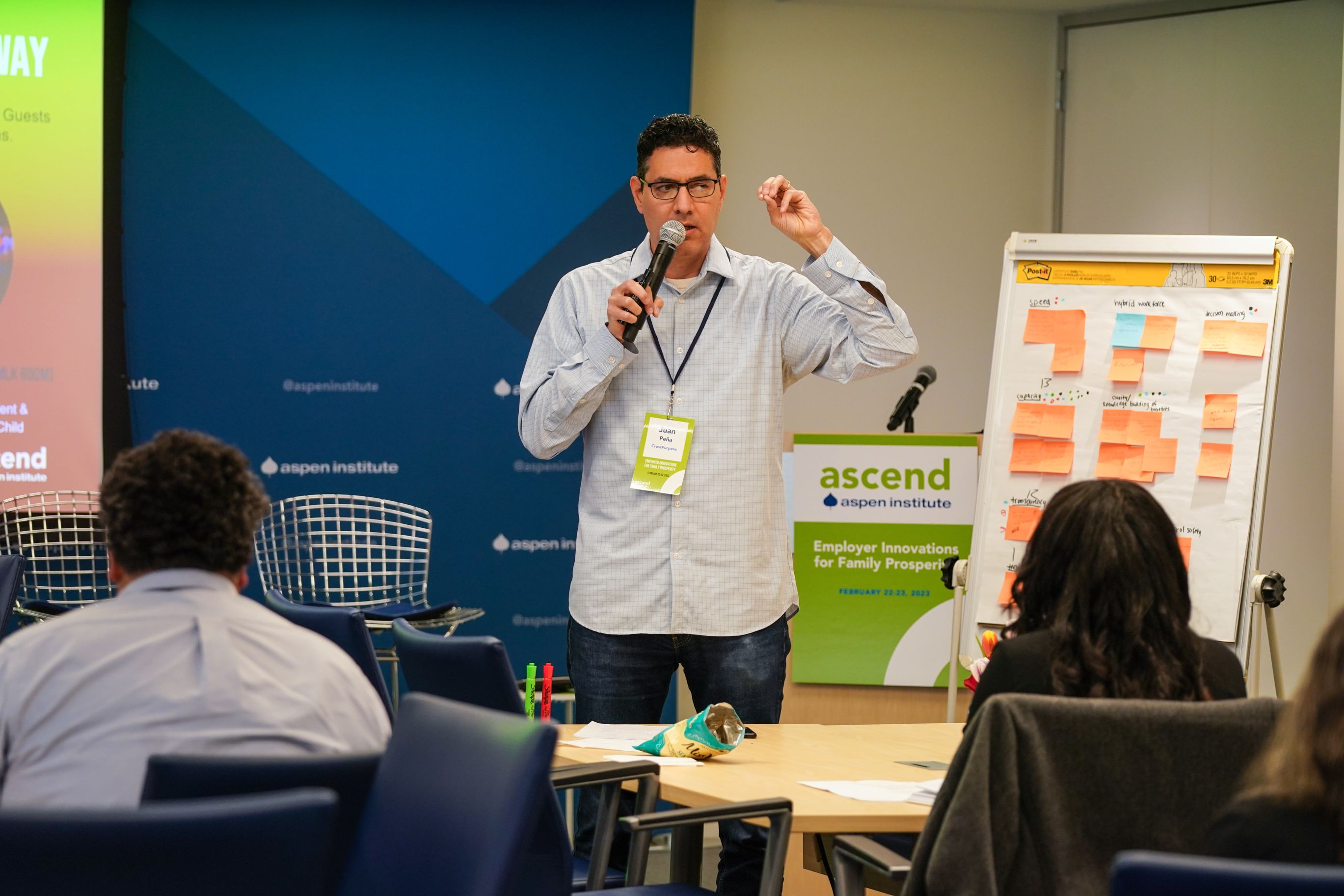
Juan Peña, Chief Innovation Officer, CrossPurpose | Photo by Ralph Alswang
Juan Peña, Chief Innovation Officer, CrossPurpose | Photo by Ralph Alswang
CrossPurpose’s Family Financial Planner
CrossPurpose | Featured Innovation
The Family Financial Planner (FFP) allows a family and a financial coach to accurately model a family’s financial future as its income increases in Colorado. In addition to income, expense, and debt tracking, the FFP provides estimates for various expense categories based on the family’s geography and structure as derived from the Colorado Center for Law and Policy’s (CCLP) self-sufficiency standard.

Anne Kandilis, Executive Director, Springfield WORKS (Left) | LaTonia Naylor, Chief Executive Officer, Parent Villages, Inc. (Right)
Anne Kandilis, Executive Director, Springfield WORKS (Left) | LaTonia Naylor, Chief Executive Officer, Parent Villages, Inc. (Right)
Using the Earned Income Tax Credit to Address the Benefits Cliff
Baystate Health & Springfield WORKS | Featured Innovation
Springfield WORKS is a community-based, workforce development organization and close partner in the Family Prosperity work of Baystate Health in Springfield, Massachusetts. Informed by service providers and families, Springfield WORKS advocated for Bill S.119, a proposal to use the state’s earned income tax credit (EITC) to address the impacts of the benefits cliff.
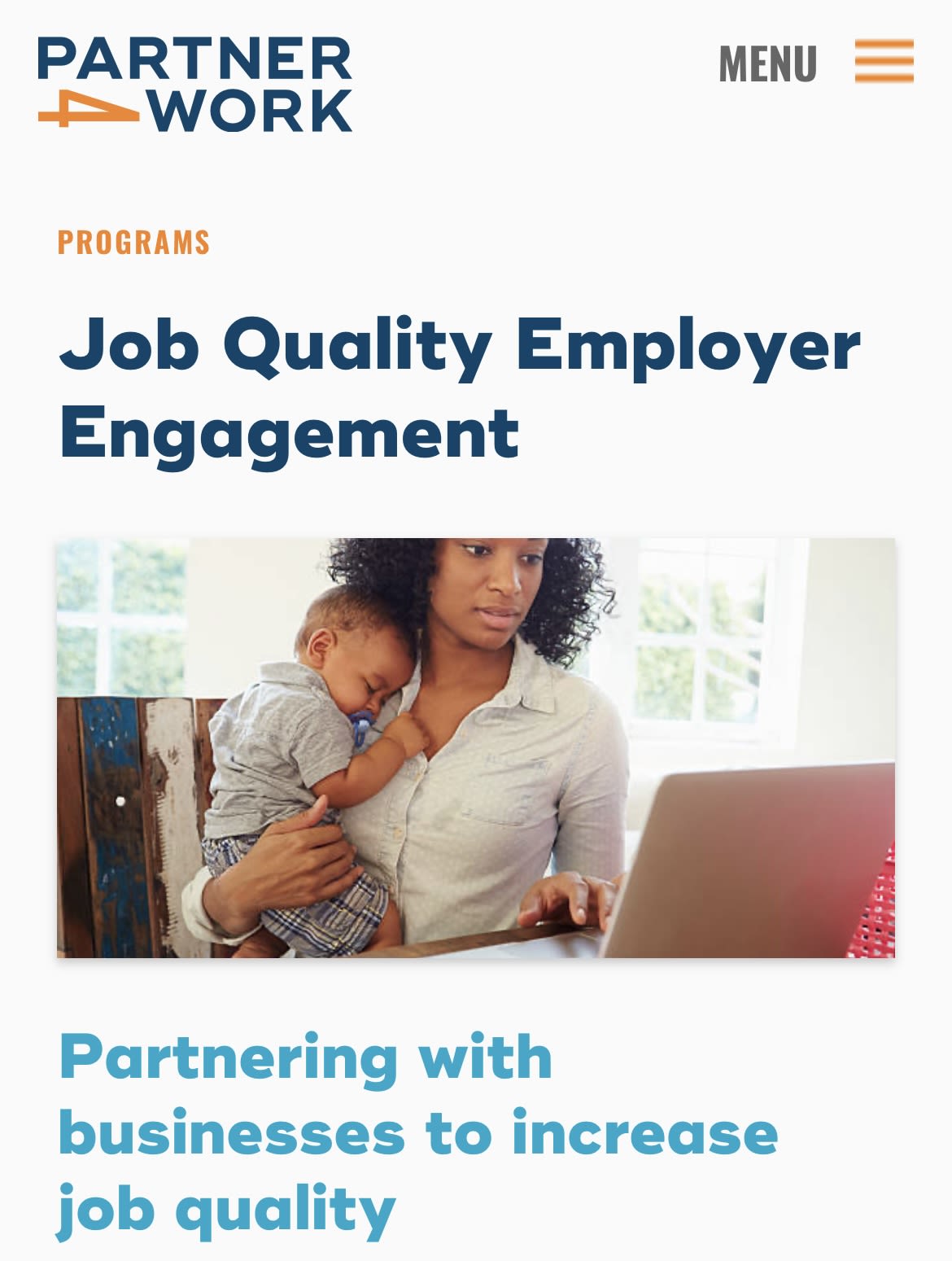
Job Quality Employer Engagement Site
Partner4Work (PA) | Website
Audience: Employers in the Pittsburgh, Pennsylvania
This landing page features Partner4Work’s insights from partnering with businesses to increase job quality in Pennsylvania. Through its intentional collaboration with both employers and working caregivers, Partner4Work (P4W) has developed a plethora of tools and resources aimed at defining and assessing job quality and using the input of working families.
The onset of the pandemic marked a moment of rapid and intense change within the labor market. As conditions improve, employers cannot rely on a return to pre-pandemic workplace conditions. P4W offers resources, technical assistance, and a learning community for employers working to provide competitive, high-quality jobs.
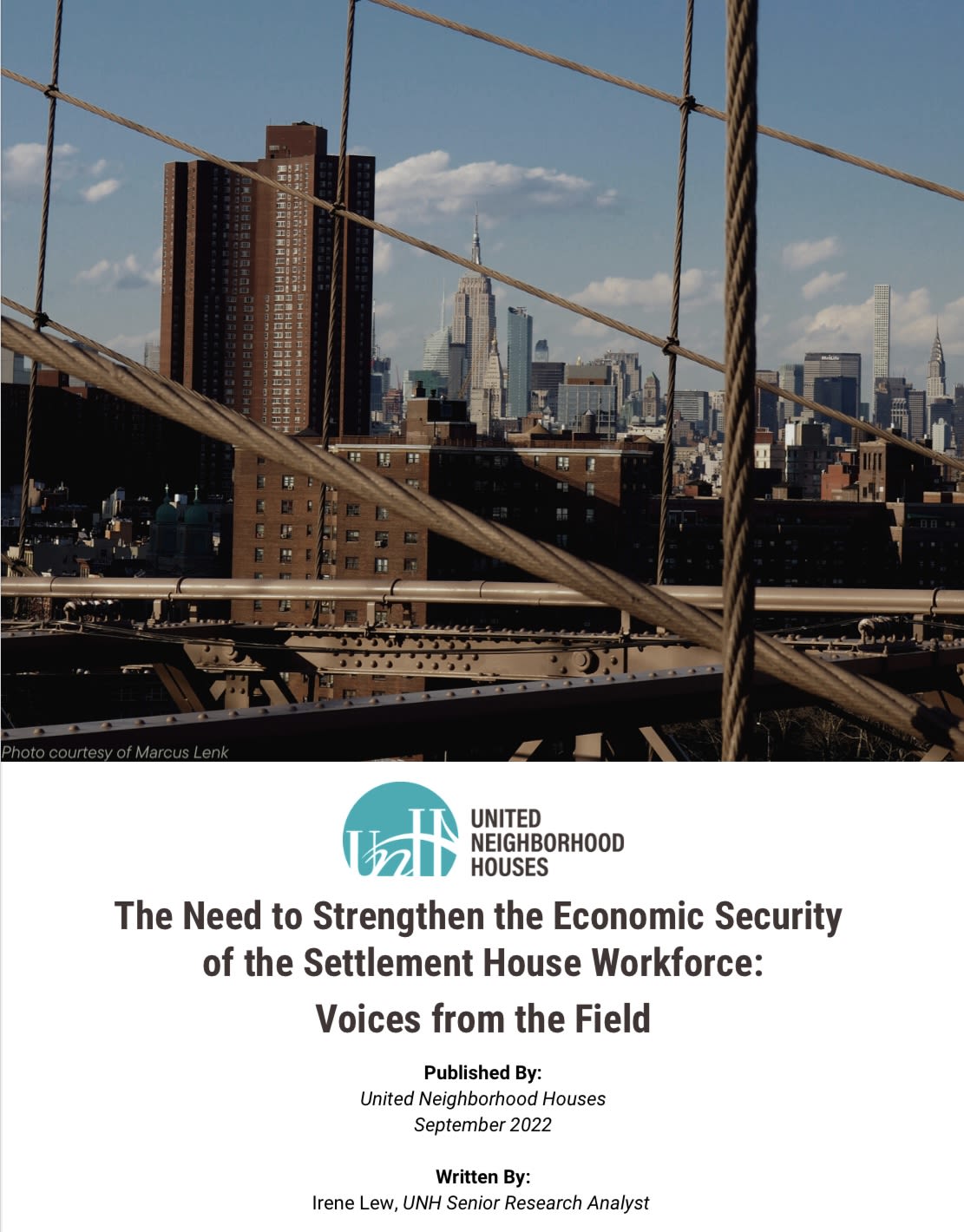
The Need to Strengthen the Economic Security of the Settlement House Workforce: Voices from the Field
United Neighborhood Houses of New York | Report
Audience: Policymakers and human services employers
Centered on findings from the Settlement House Employees’ Work-Related Experiences and Settlement House American Rescue Plan (SHARP) Impact Study, this report details government underinvestment in the human services workforce. United Neighborhood Houses argues that this underinvestment has led to poverty-level wages and lack of salary parity with other sectors, creating challenges in recruitment and retention. The report offers recommendations for policymakers to ensure economic security for settlement house workers and the others employed in the human services sector.
This report’s recommendations aim to support a workforce that serves multiple communities of working families with low incomes. Prioritizing direct investment in human services providers ultimately strengthens retention, satisfaction, and quality of service delivery. The recommendations presented in this brief provide policymakers with timely and actionable responses to the needs and experiences of human services employees.
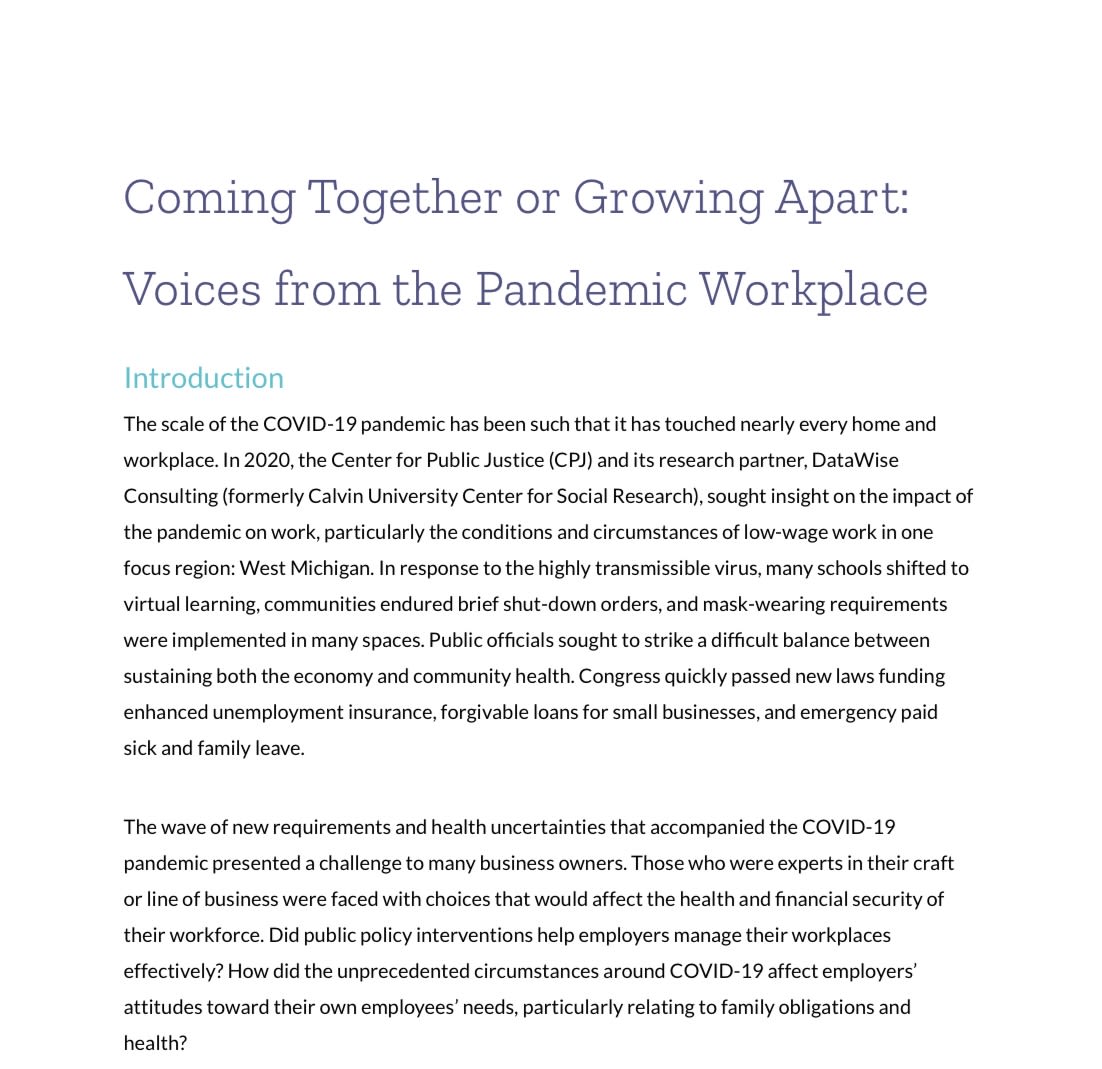
Coming Together or Growing Apart: Voices from the Pandemic Workplace
Center for Public Justice | Report
Audience: Faith-informed, small business employers
This report features findings of a research model that centers the experiences of caregiving workers with low incomes and faith-shaped employers in West Michigan. Partnering with DataWise Consulting, the Center for Public Justice created a research model to find out more about workers in the income-constrained category — people who earn slightly higher wages but lack sufficient income to cover essential expenses or face a major financial setback. They also heard from employers whose workforce includes those in the income-constrained category and compared the experiences and attitudes of both employers and employees.
The report includes recommendations for employers about combining public and private support, enhancing workplace culture, and developing policies related to the long-term physical and mental health implications of the pandemic. Though geared toward faith-informed employers, these findings and recommendations illustrate best practices for any employer seeking to deepen support for working parents and caregivers.
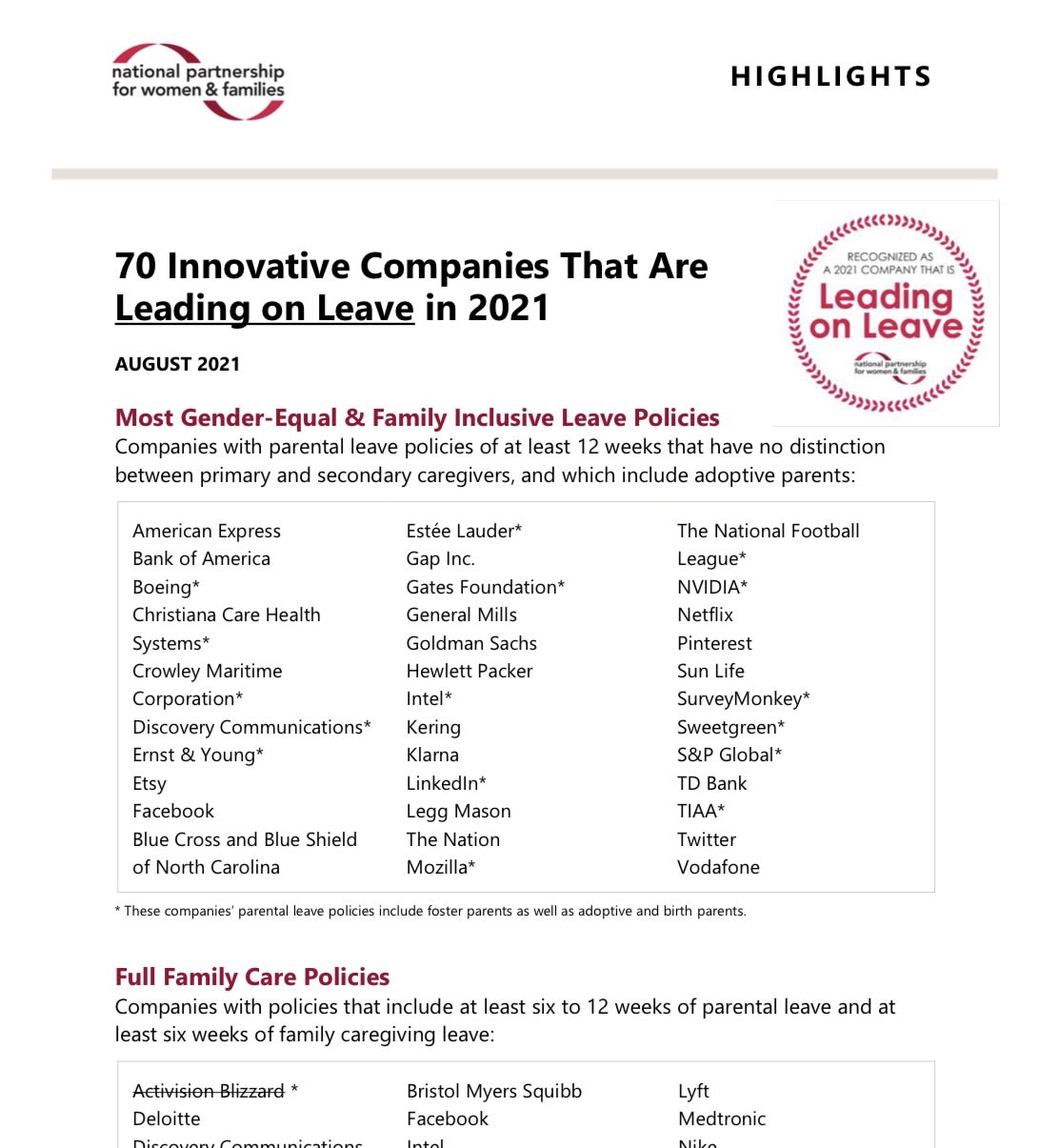
70 Innovative Companies that Are Leading on Leave in 2021
National Partnership for Women & Families | Report
Audience: Employers and employees seeking examples of effective and competitive leave policies
An update to the National Partnership for Women & Families’ 2020 Leading on Leave: Companies with New or Expanded Paid Leave Policies, this new report identifies 70 employers as leaders on various leave policies in 2021. The report features Etsy, American Express, and Mozilla, among others, as having the most gender-equal and family-inclusive leave policies. The report also details employers leading the way in full family care policies, comprehensive leave for parents who give birth, and part-time employment equity.
The expansion of workplace leave policies is one of many opportunities to support caregiving workers with low incomes. Leading employers of all industries and sizes are recognizing the importance of eliminating barriers for workers with caregiving responsibilities and creating workplaces for employees to thrive. This report lifts examples of employers working to do right by families and caregivers.
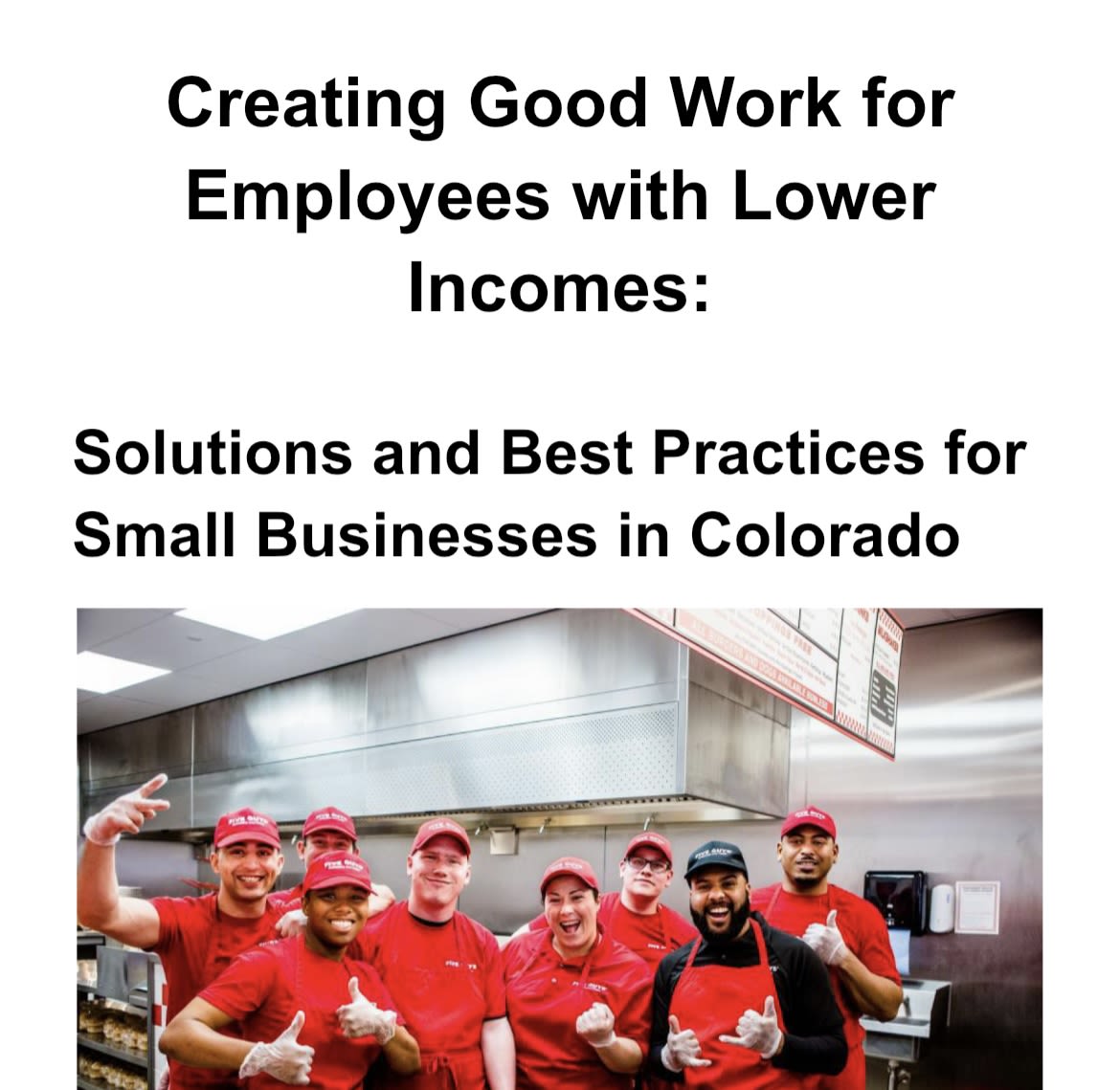
Solutions and Best Practices for Small Businesses in Colorado
CrossPurpose | Handbook
Audience: Small business owners in Colorado, as well as small business owners in other states seeking lessons from Colorado-specific employer engagement
This is a guide for small business employers in Colorado looking to provide good jobs and opportunities for working families to thrive. It supports employers in adapting policies and practices to support five domains in which employees work and live: physical and mental health, financial wellness, stress management and relational skills, housing/neighborhood, child and dependent care, and transportation.
While developed for business owners in Colorado, the guide provides several examples of practices and policies that could be easily adopted by small businesses in any state.
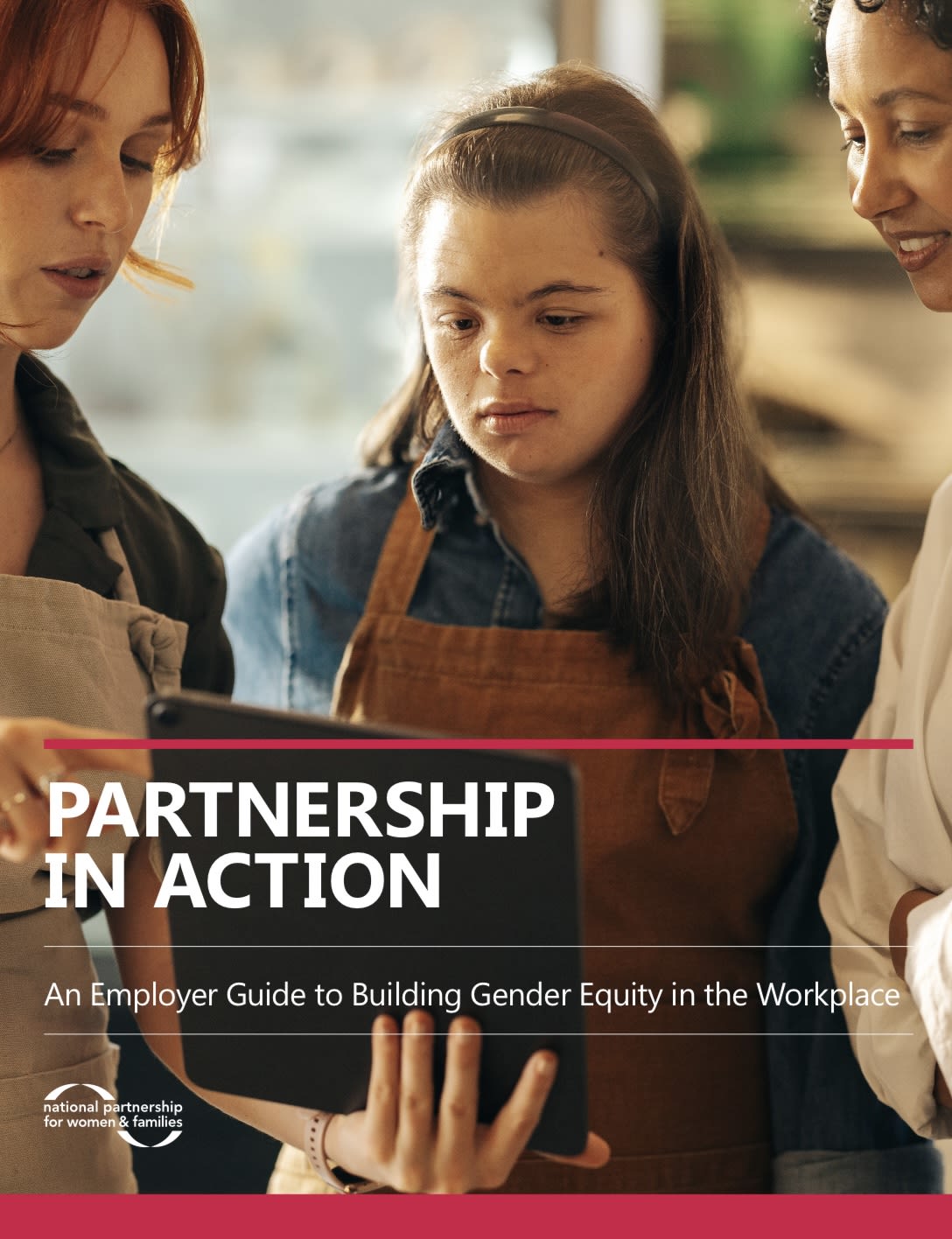
Partnership in Action: An Employer Guide to Building Gender Equity in the Workplace
National Partnership for Women & Families | Guide
Audience: Employers seeking to provide better benefits to their employees, particularly those who are part-time, hourly, or low-wage workers.
The economic and labor force repercussions of the global pandemic have disproportionately impacted women — women of color, more specifically. The National Partnership for Women & Families developed this guide for employers seeking to provide better benefits to their employees, particularly those who are part-time, hourly, or low-wage workers. This report is a blueprint for employers looking to promote and implement equitable workplace policies, and it provides recommendations that help women, especially women of color, return to and stay in the labor force.
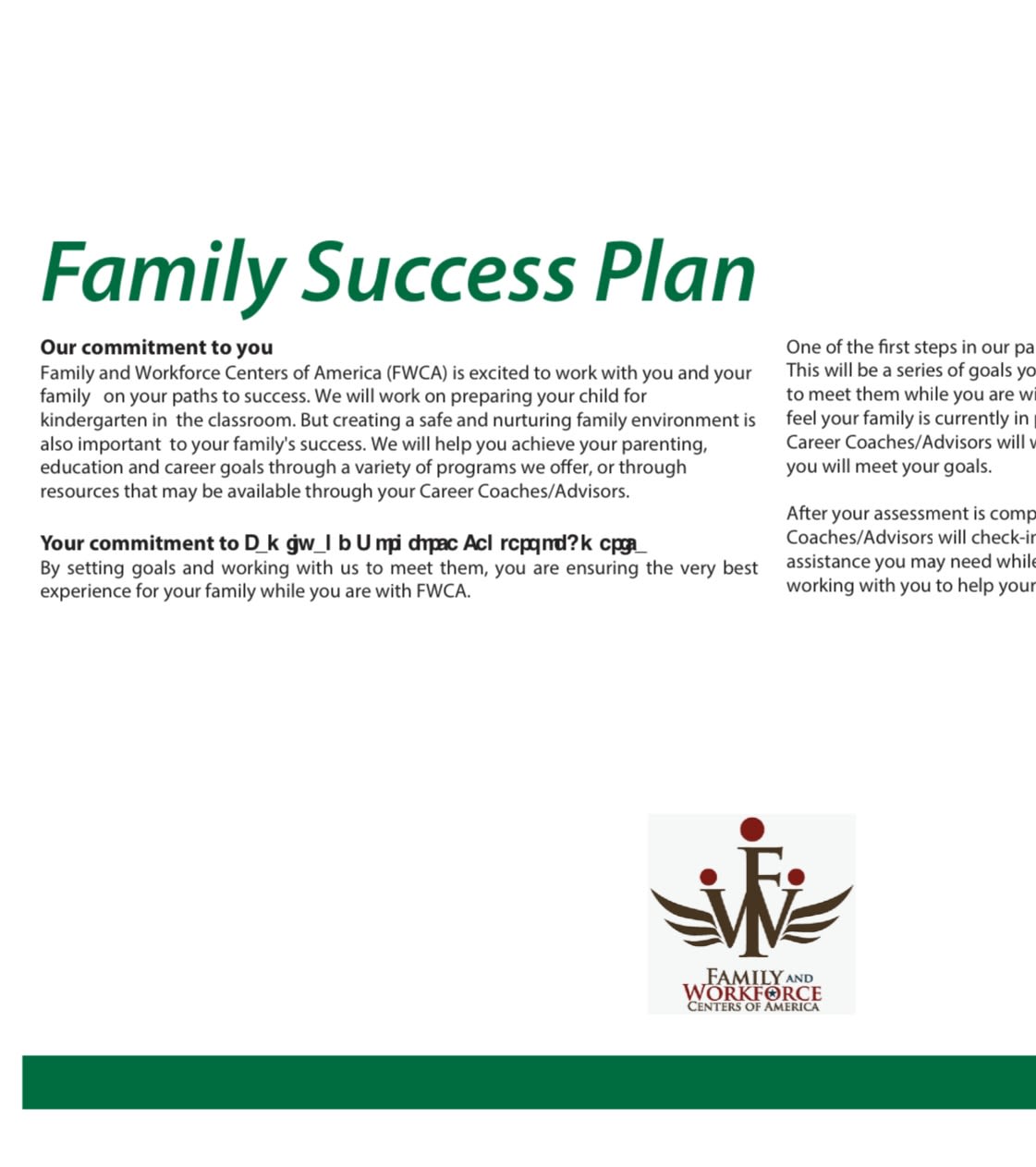
Family Success Plan
Family and Workforce Centers of America | Assessment Tool
Audience: Community-based and workforce development organizations seeking a tool to assess client priorities and develop long-term support strategies
The Family Success Plan is designed to guide families, working in partnership with a career coach, in setting actionable goals for their education, parenting, healthy relationships, child’s engagement in school, stable and affordable housing, financial security, and physical and mental health. After completing the form, families work with their career coach to track progress and access wraparound support services.
The assessment tool was developed in partnership with a parent advisory council made up of clients of Family Workforce Centers of America. Council members were invited to provide feedback on several iterations of the tool throughout the development process. While the tool itself is replicable nationally, the work of soliciting feedback and codesigning resources with parents has the greatest potential for scale.
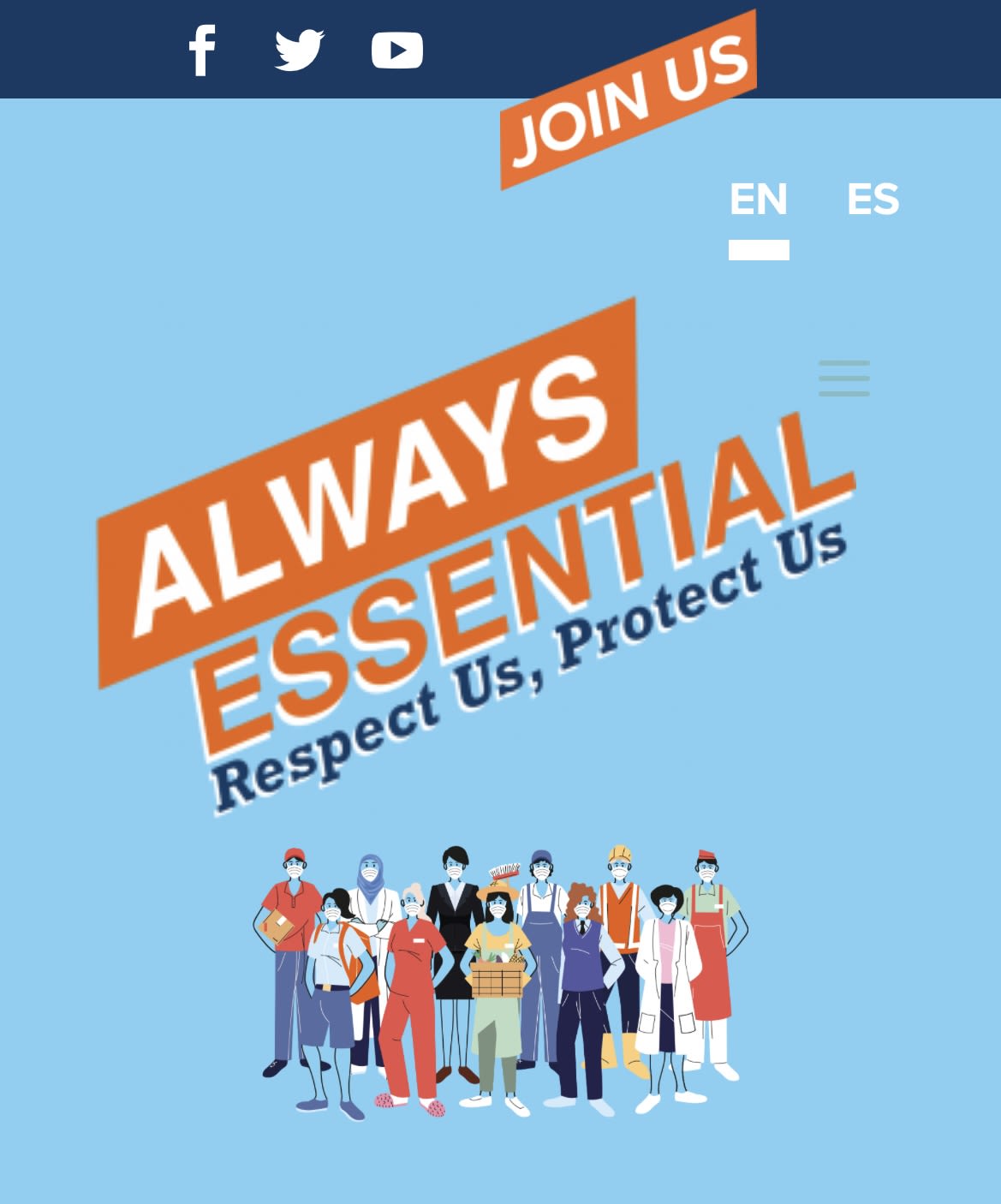
Always Essential: Respect Us, Protect Us
Jobs With Justice | Campaign
Audience: Local, state, and federal systems and employers
In response to the increased visibility of essential workers during the pandemic, Jobs With Justice launched the Always Essential Coalition — a national campaign led by working people, activists, and organizations seeking to secure safe and equitable workplaces for essential workers nationwide. By working with local, state, and federal policymakers, Always Essential amplifies the voices and power of workers and their families. In November 2021, Jobs with Justice and Always Essential partners successfully established the Harris County Essential Workers Board in Houston, Texas. The board is the first in the nation to give workers a direct say in the laws and regulations pertaining to workers rights, contracting, and public health policy, among others.
The Harris County Essential Worker Board is a model of parent and worker engagement that stands to have lasting impact on family outcomes in Harris County and beyond. As the first of its kind, the strategy and model is ripe for replication by county, state, and federal agencies looking to increase the efficacy of their labor and employer policies.
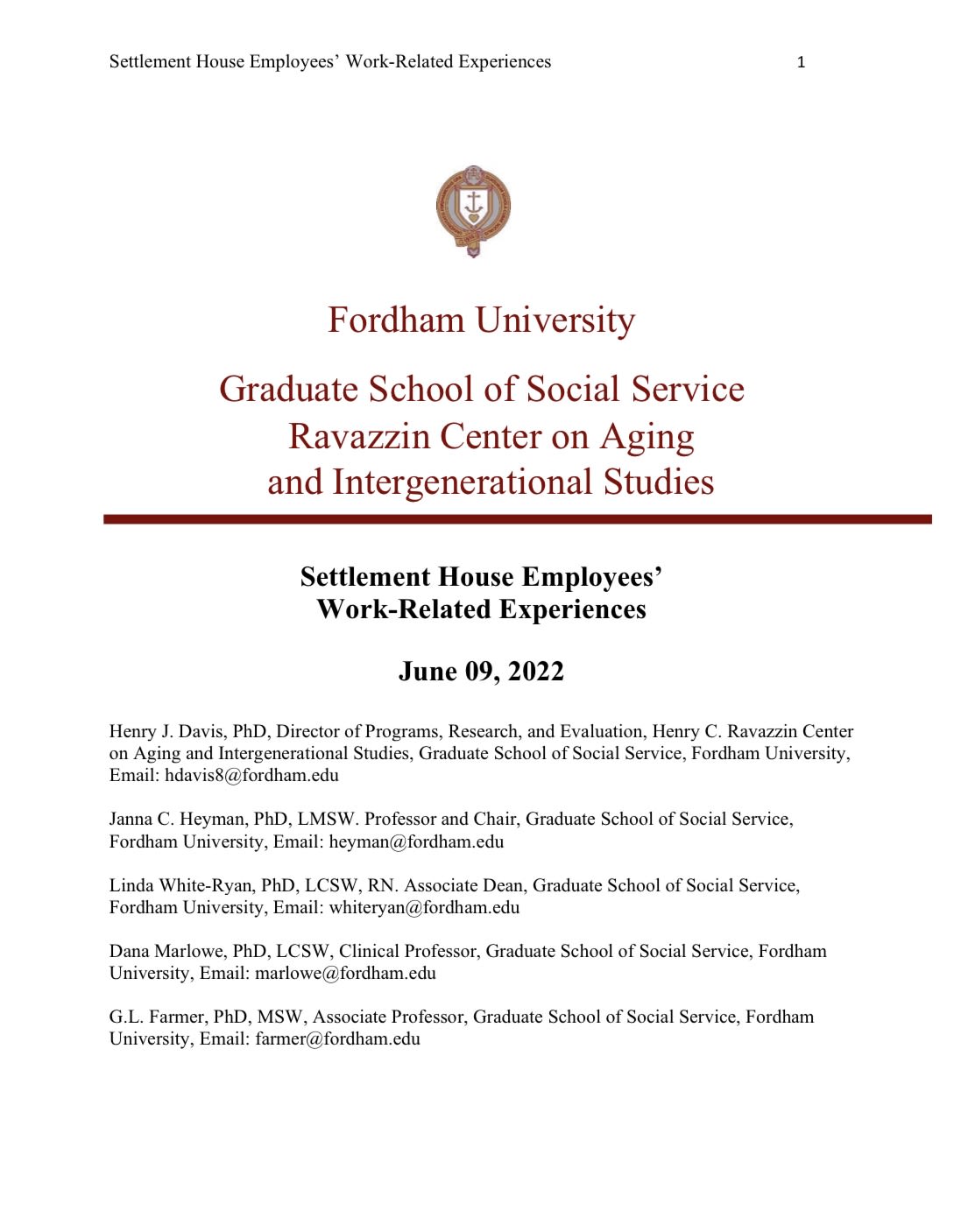
Settlement House Employees’ Work-Related Experiences
United Neighborhood Houses | Report on Focus Group Insights
Audience: Nonprofit organizations and public agencies employing direct service providers
In partnership with researchers from Fordham University’s Graduate School of Social Service, Ravazzin Center on Aging and Intergenerational Studies, United Neighborhood Houses conducted a mixed-method study to better understand settlement house employees’ perceptions of work-related burnout, workplace climate, wages, and benefits. Informed by surveys and focus groups with settlement house employees, this report details key findings and offers recommendations for creating more supportive workplaces for direct service providers.
The focus group design can be replicated by other direct-service organizations seeking to understand the needs and experiences of their employees, many of whom are caregivers with low incomes.
Child Care
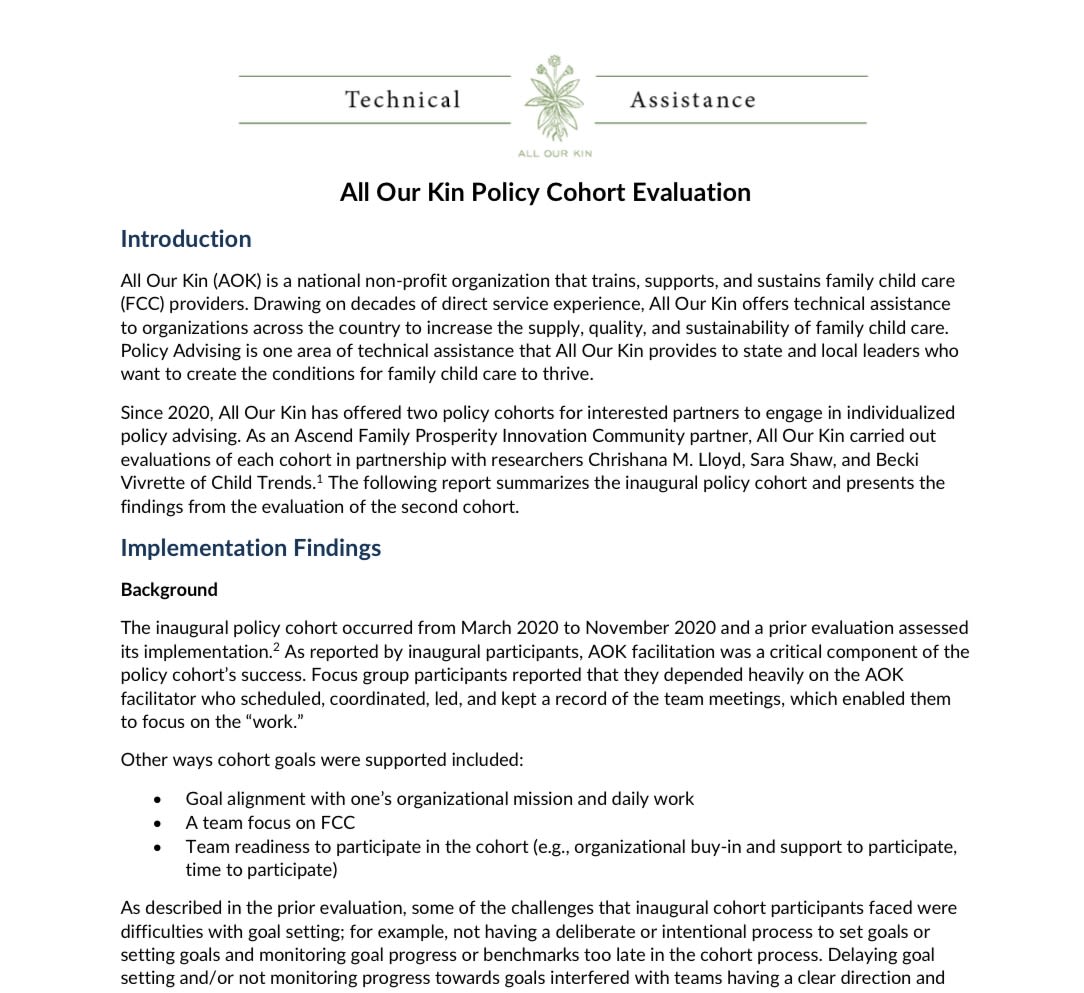
Family Child Care Policy Cohort I & Cohort II Evaluation
All Our Kin | Report
Audience: State agency administrators, workforce development directors, advocates, labor representatives, and family child care providers
These reports describe the Family Child Care Policy Cohort Initiative and provide an overview of the evaluation approach, high-level findings, and recommendations. Each cohort consisted of early childhood leaders, including state agency administrators, workforce development directors, advocates, labor representatives, and family child care providers. They received training and technical assistance to strengthen, support, and sustain family child care nationally.
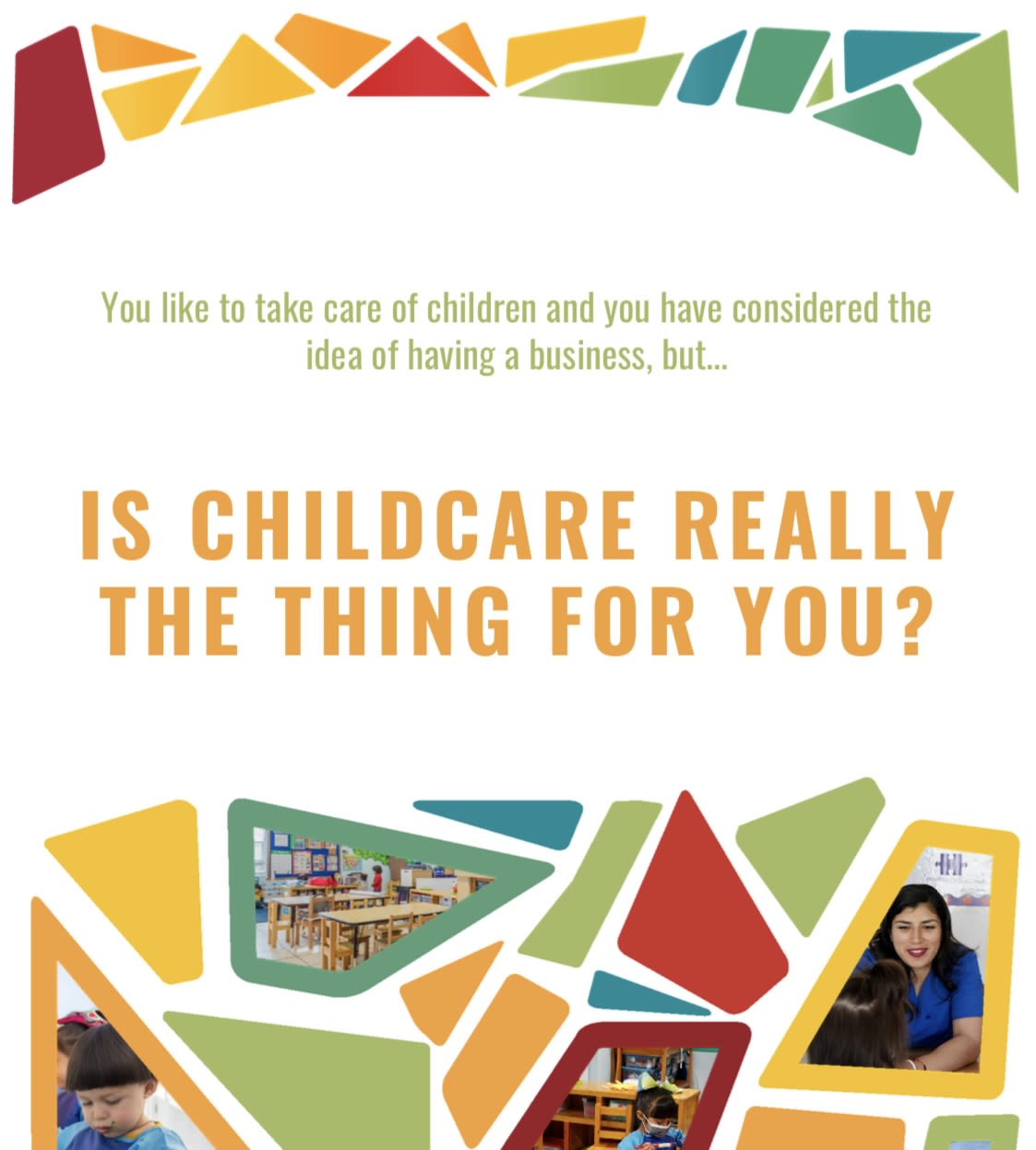
Is Childcare Really the Thing for You?
Partnership for Community Action | Toolkit
Audience: Home-based child care providers seeking to establish or strengthen their business skills and understanding of early care and learning systems
In the local economy of Albuquerque in desperate need of a more equitable child care system, Partnership for Community Action’s Child Care Provider Network supports entrepreneurs in scaling their home-based businesses. This toolkit guides child care providers through the considerations and processes involved in establishing and operating a home-based child care business.
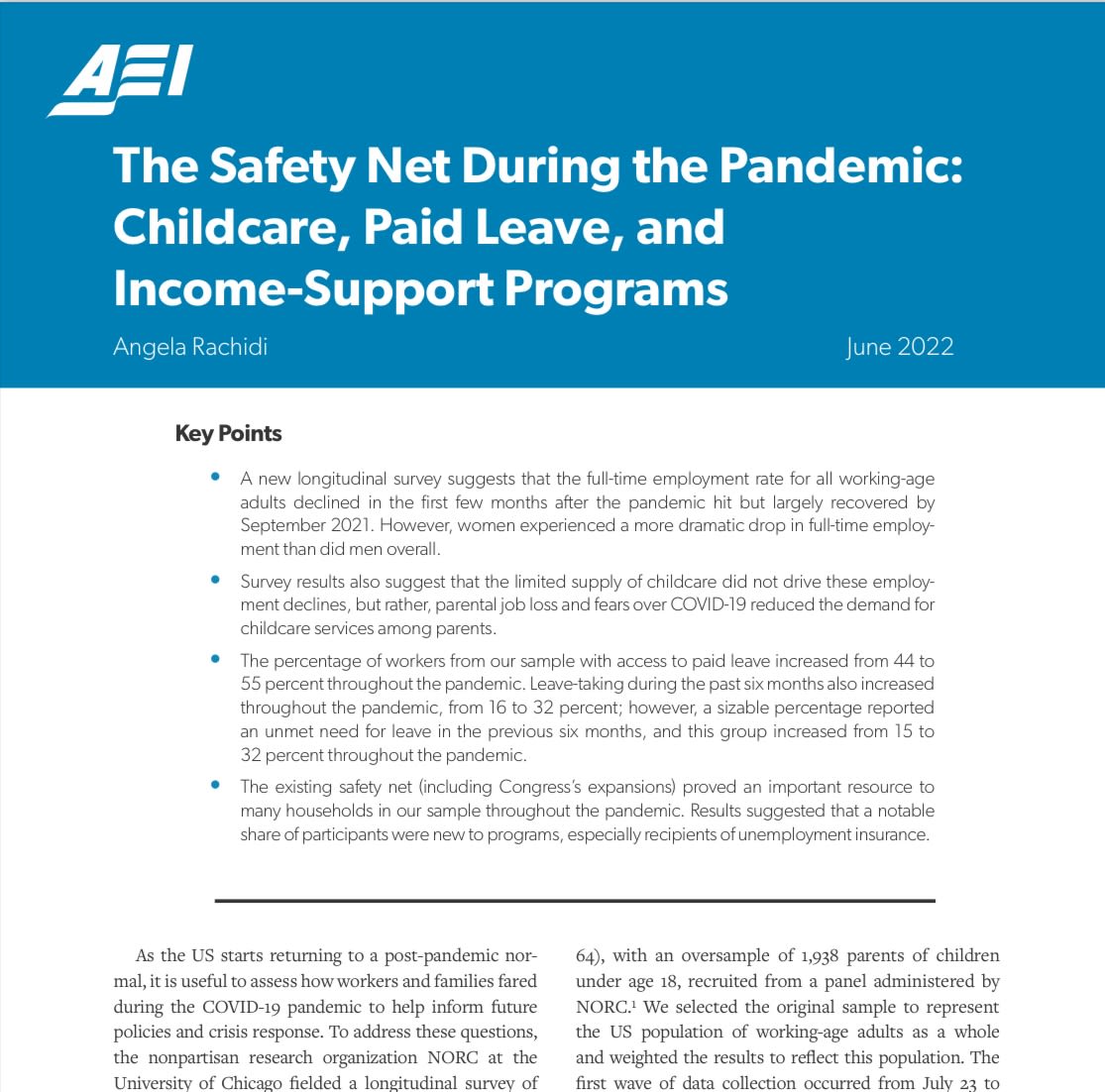
The Safety Net During the Pandemic: Childcare, Paid Leave, and Income-Support Programs
American Enterprise Institute | Report
Audience: State and federal policymakers and public officials
This report details survey results that assessed how workers and families fared during the pandemic to help inform future policies and crisis responses. The report details the pandemic’s impact on the maternal employment rate, the child care market, and the reach and effectiveness of emergency income-support programs for families.

A New Colorado Child Care Assistance Program Policy
CrossPurpose | Featured Innovation
CrossPurpose and its partners identified a flaw in the Colorado Child Care Assistance Program (CCCAP): as family income increased to between 100 and 130 percent of the federal poverty level (FPL), parent copays increased dramatically, creating a steep cliff for parents and caregivers. Working closely with the Office of Early Education, CrossPurpose set a goal to develop an amended policy that would keep copays below 10 percent of household income.
Paid Leave and Family Policy
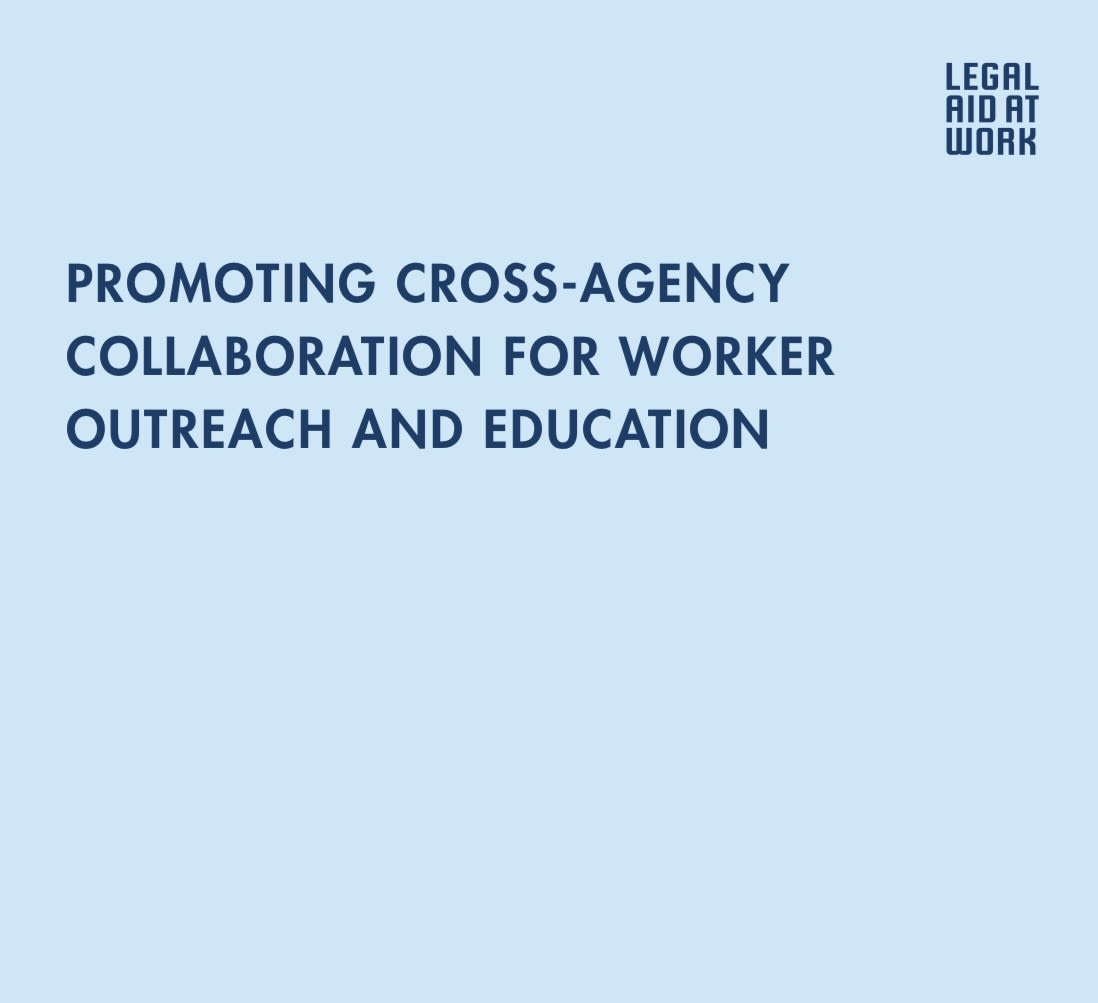
Promoting Cross-Agency Collaboration for Worker Outreach and Education
Legal Aid at Work | Case Study
Audience: State agencies implementing or developing paid leave programs and advocates for paid leave legislation
This case study outlines Legal Aid at Work’s campaign to increase knowledge of worker’s rights to paid leave and accommodations in California, especially for marginalized workers. Featuring key lessons and recommendations, Legal Aid at Work documents the process through which collaborating agencies were identified, partnerships were built, and parents, employers, and health care providers were engaged — and how they all joined efforts to create better access to paid leave and related benefits.
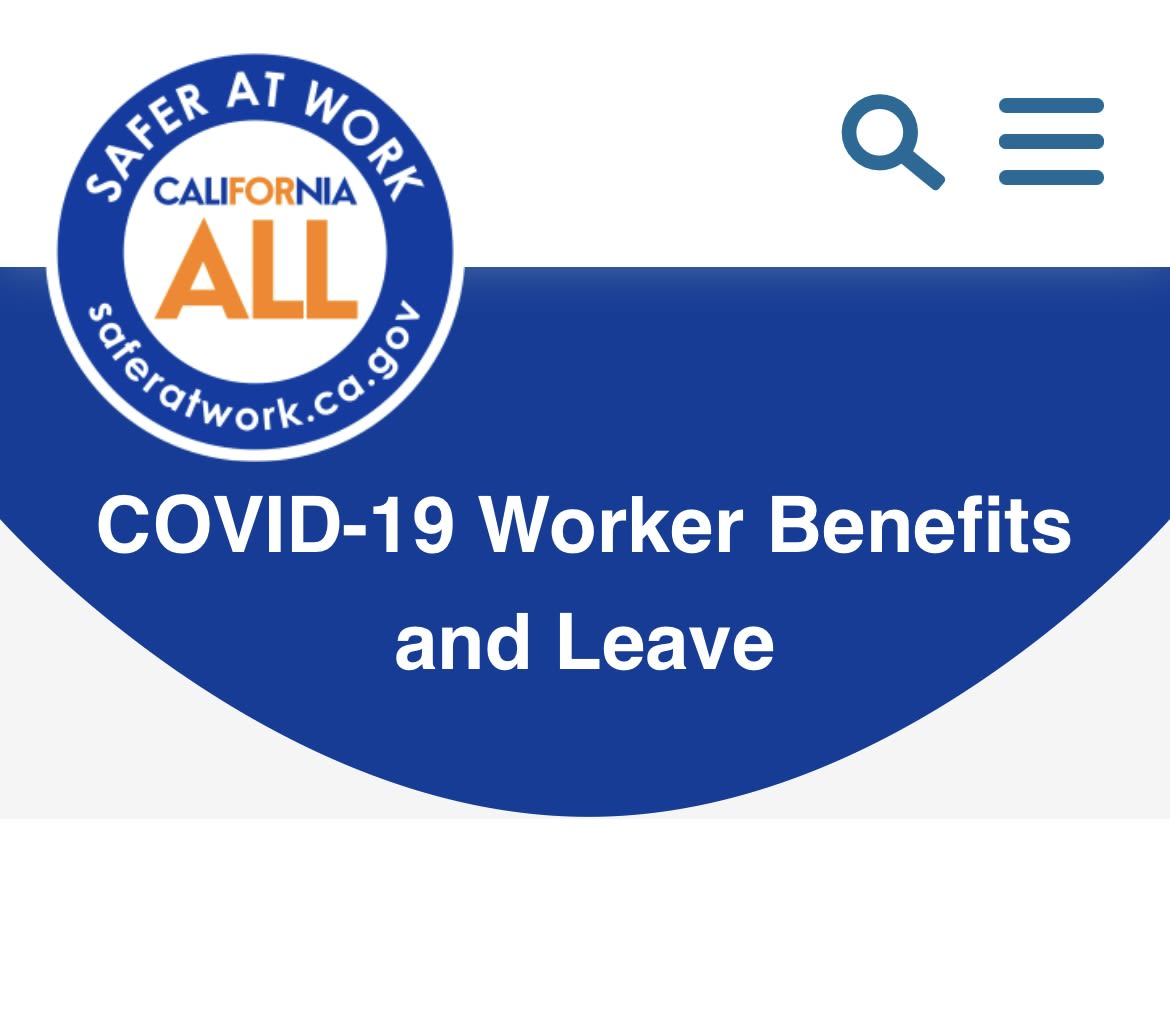
COVID-19 Worker Benefits and Leave Navigator
Legal Aid at Work | Website
Audience: State agencies implementing leave benefits and legislation and workers seeking to understand their rights
Working with the California Civil Rights Department, the Labor and Workforce Development Agency, and the Department of Public Health, Legal Aid at Work created materials related to workers’ rights and COVID-19 that are person-centered and holistic. This collaboration resulted in the development of a fact sheet and the virtual COVID-19 Worker Benefits and Leave Navigator, which guides users through the various leave opportunities and services provided by the state of California.
The cross-agency collaboration demonstrated in the development of these tools is a model for state agencies across the country. Legal Aid at Work has effectively broken down silos within key state agencies in California, which has resulted in the creation of accessible tools that support working caregivers in advocating for themselves and their families.
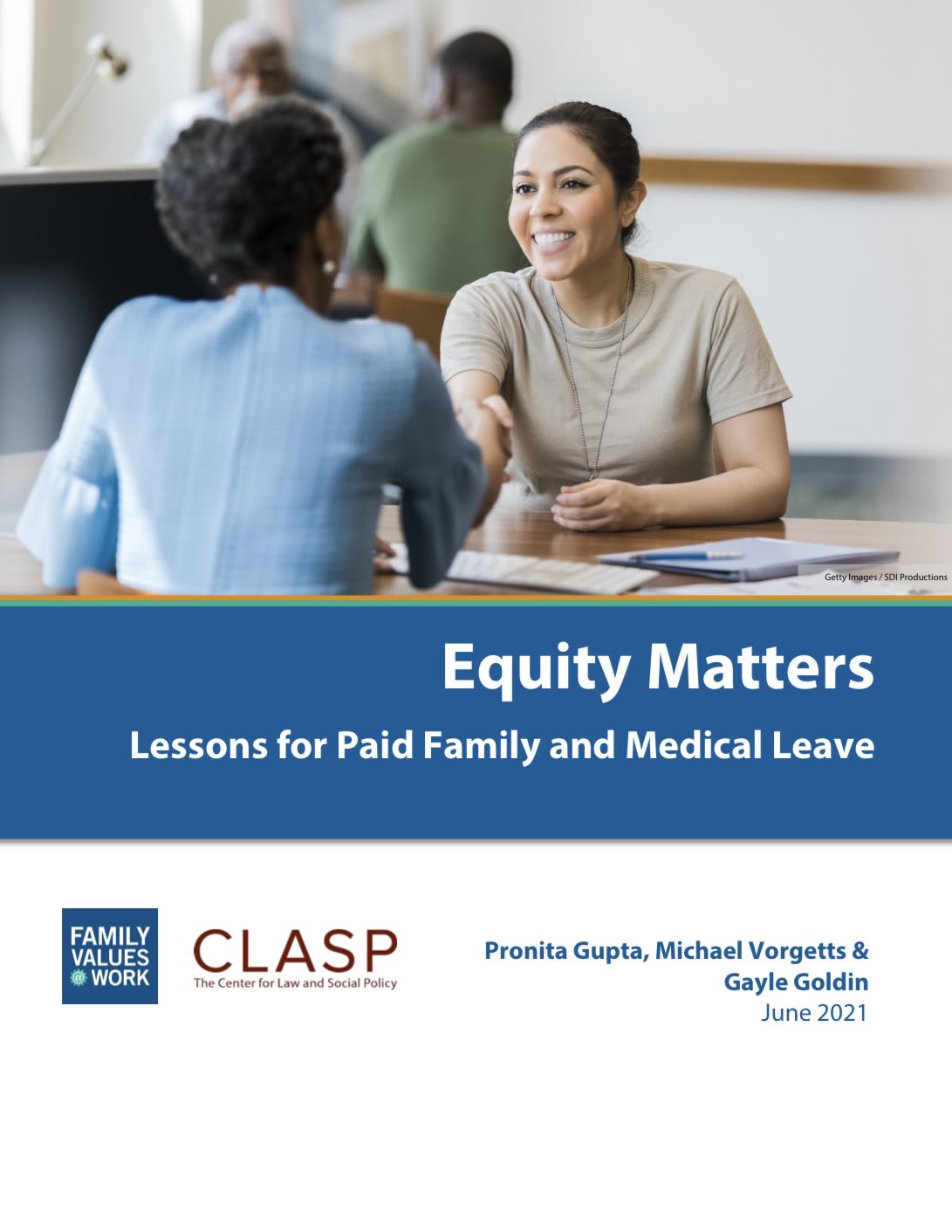
Equity Matters: Lessons for Paid Family and Medical Leave
Family Values @ Work | Report
Audience: State and federal policymakers, administrators, and advocates developing and carrying out equity-focused paid medical and family leave programs
This report shares lessons from an October 2019 convening hosted by the Center for Law and Social Policy (CLASP), Family Values @ Work, and others for government and community partners in states with paid family and medical leave (PFML) programs. The convening focused on advancing equity in state-level PFML efforts. The report offers lessons for working with state and federal policymakers, administrators, and advocates when developing and carrying out equity-focused PFML programs.
As several states across the country focus on creating paid leave programs, there is a need to ensure equitable access, information sharing, and cross-agency collaboration. It's important that policymakers share best practices with one another. This report offers timely insights and considerations for implementing equitable PFML programs at the state level.
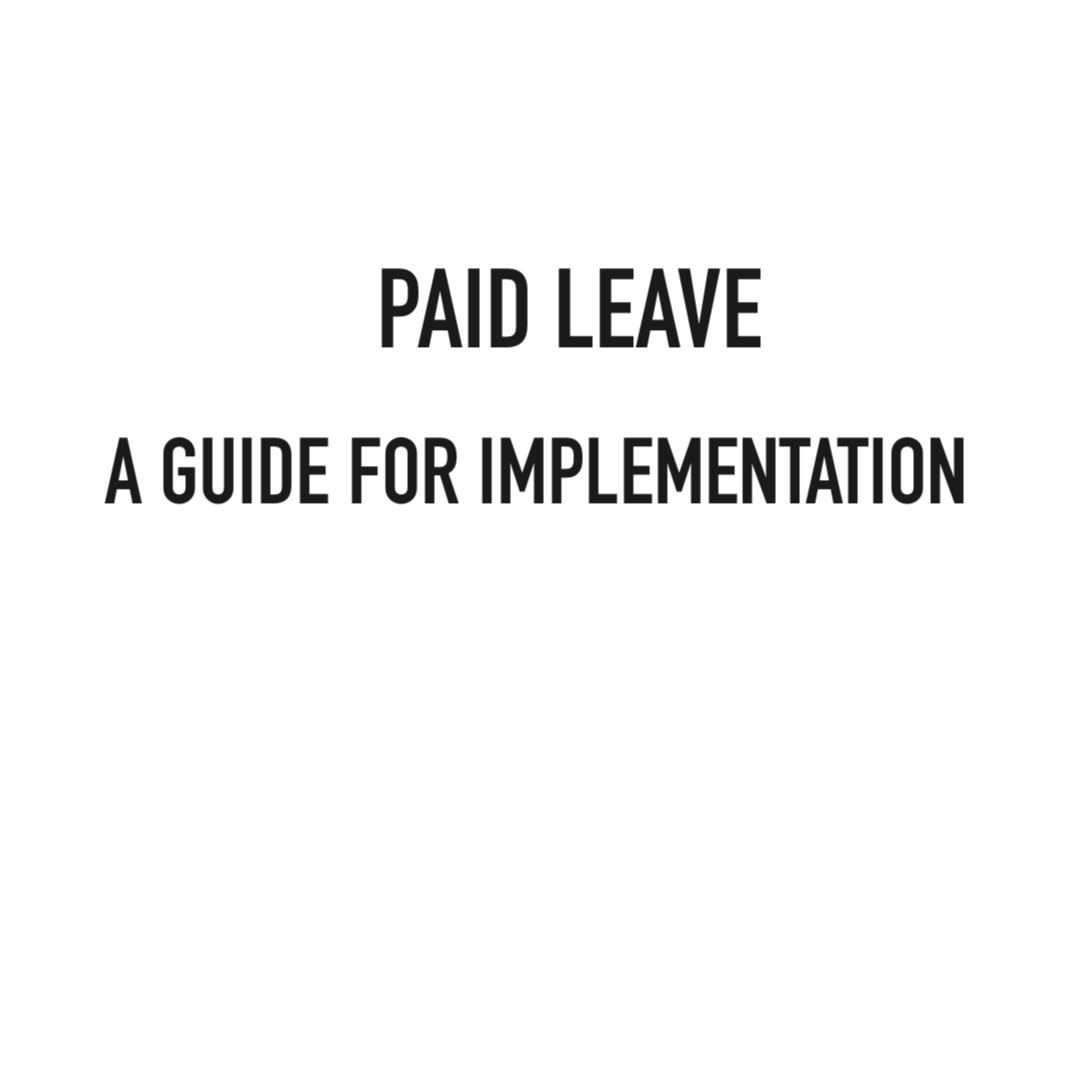
Paid Leave: A Guide for Implementation
Family Values @ Work | Report
Audience: State administrators and practitioners implementing recently passed state paid leave legislation
This report is a compilation of best practices in implementing paid leave legislation at the state level. Throughout, Family Values @ Work outlines key considerations and provides case studies for state-level administrators implementing effective and accessible paid leave programs. These considerations include, but are not limited to, accounting for diversity in wage/income, language, technological proficiency, media, and accommodations.
As the momentum for paid leave policy shifts from a focus on federal legislation to state-level opportunities, this report, informed by experienced practitioners, advocates, and workers, is an excellent resource for states implementing new paid leave programs.
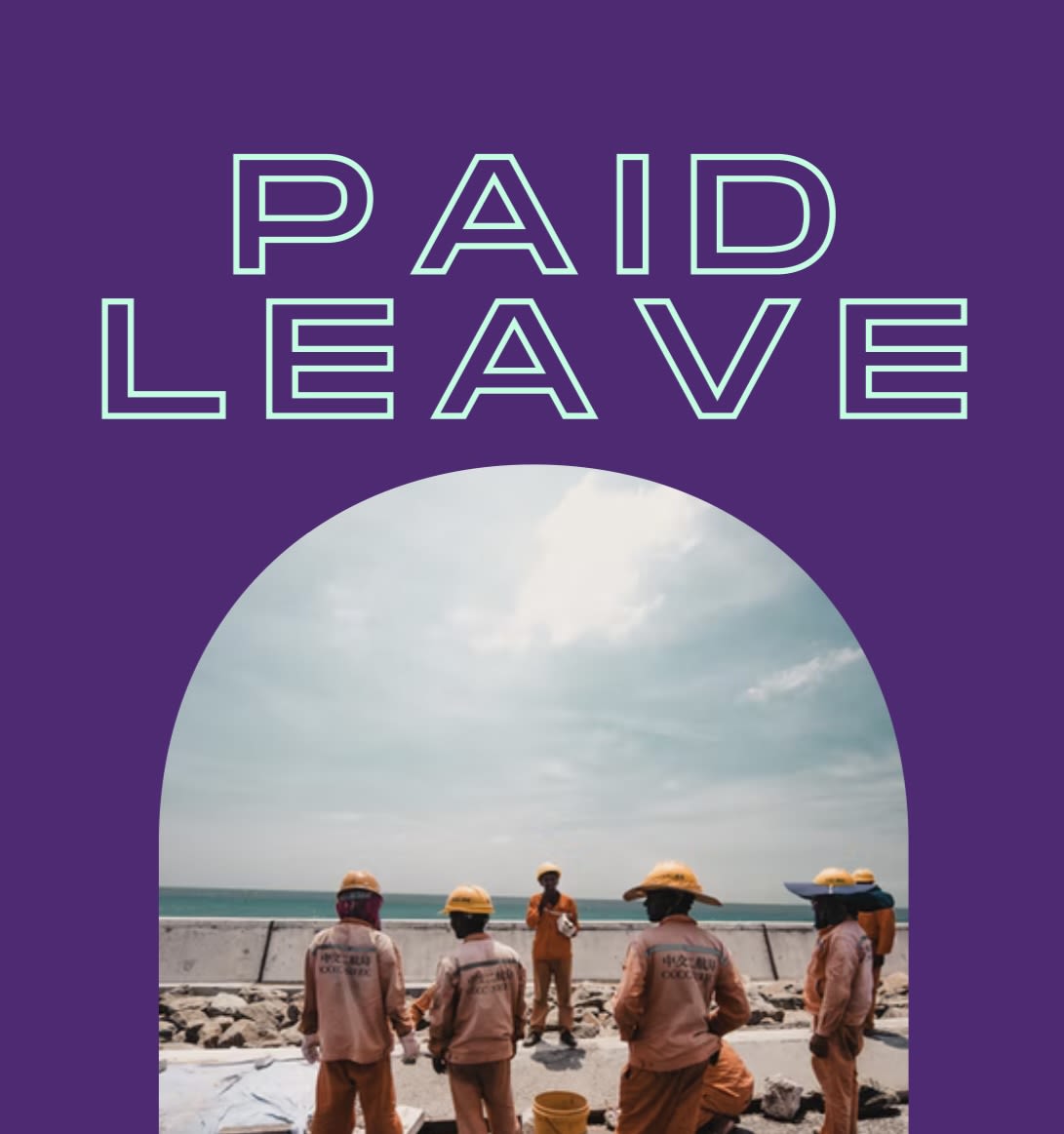
Paid Leave: A Guide for Workers
Family Values @ Work | Guide
Audience: Workers seeking information about paid leave programs and resources in their state
This guide offers an overview of all of the states with paid leave programs and additional resources available to workers. It includes answers to frequently asked questions regarding paid leave eligibility and stories of paid leave recipients and activists.
As workers partner with employers — and identify organizing tactics to develop stronger feedback loops with employers — this report serves as a powerful roadmap for employer accountability and provides key messages for workers to use when negotiating and organizing for fair and equitable paid leave policies.
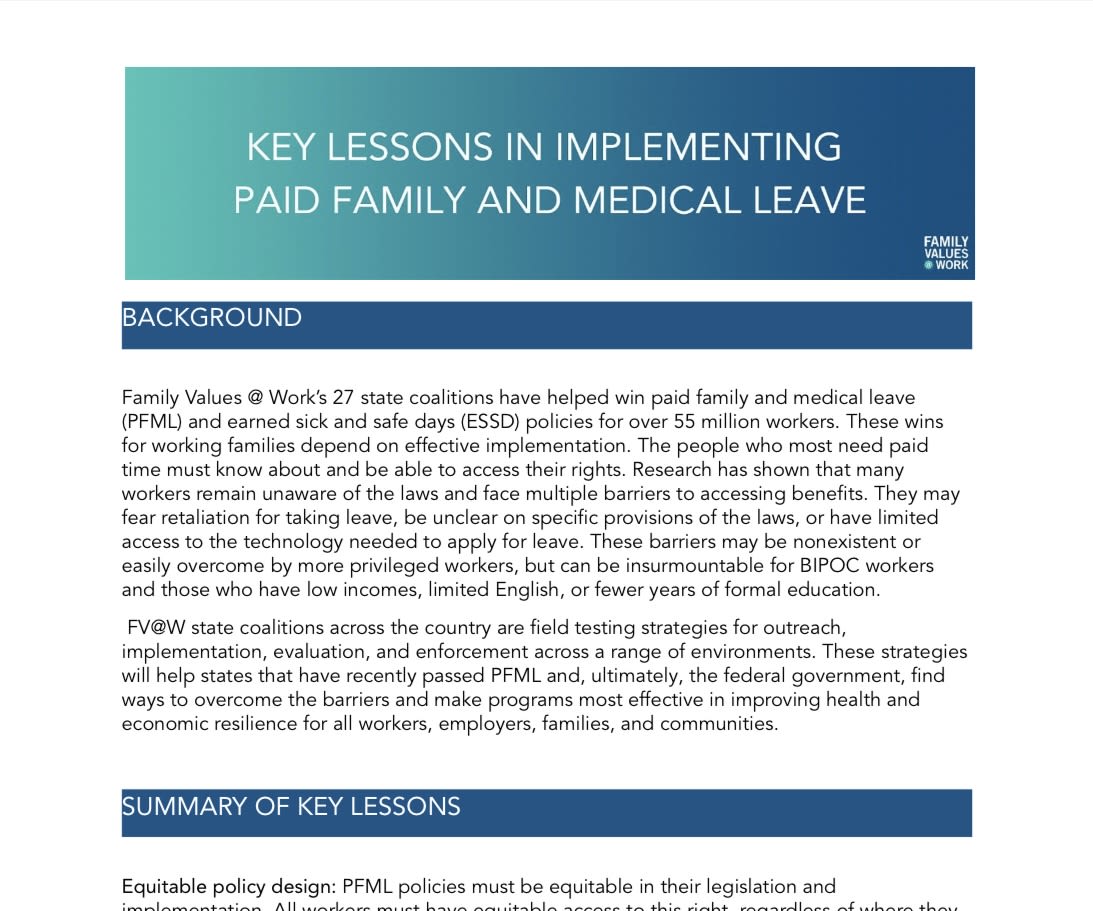
Key Lessons in Implementing Paid Family and Medical Leave
Family Values @ Work | Brief
Audience: State and federal policymakers, administrators, and advocates developing and implementing paid family and medical leave programs
Featuring important strategies, this brief aims to help states that have recently passed paid family and medical leave legislation overcome barriers and create programs that effectively improve the health and economic resilience of all workers, employers, families, and communities. The strategies cover equitable policy design, accessible rules and processes, engagement of community leaders and advocates, and outreach to workers, among others.
Enacting legislation is the first step in a complex process that ensures workers have access to paid leave. This report provides an important roadmap for stakeholders who will benefit from collaborating on implementing legislation, including ensuring benefits reach workers who may not know they are eligible.
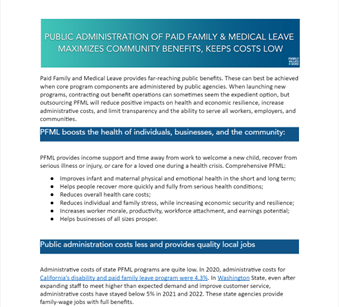
Public Administration of Paid Family & Medical Leave Maximizes Community Benefits, Keeps Costs Low
Family Values @ Work | Brief
Audience: State and federal policymakers, administrators, and advocates developing and implementing paid family medical leave programs
This brief details the many pitfalls of state privatization of paid family and medical leave. According to Family Values @ Work, outsourcing PFML reduces positive impacts on health and economic resilience, increases administrative costs, and limits transparency and the ability to serve all workers, employers, and communities.
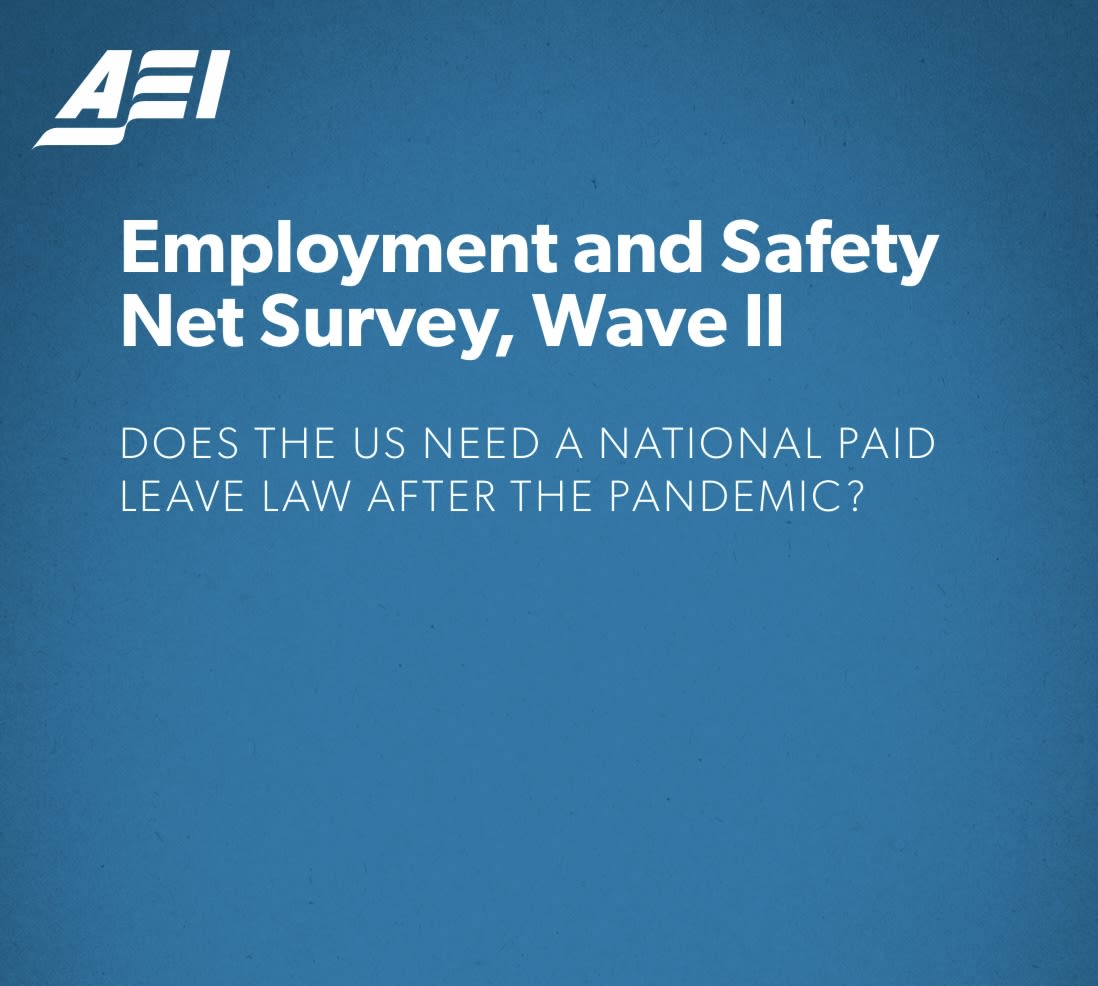
Employment and Safety Net Survey, Wave II: Perceptions of Government Spending, Program Expansions, and Dependency
American Enterprise Institute | Report
Audience: Policymakers and public officials
This report highlights key themes and findings of a survey conducted to better understand the views and concerns of American families related to federal spending before the passage of the 2021 American Rescue Plan.
Wrap-Around Direct Service Models
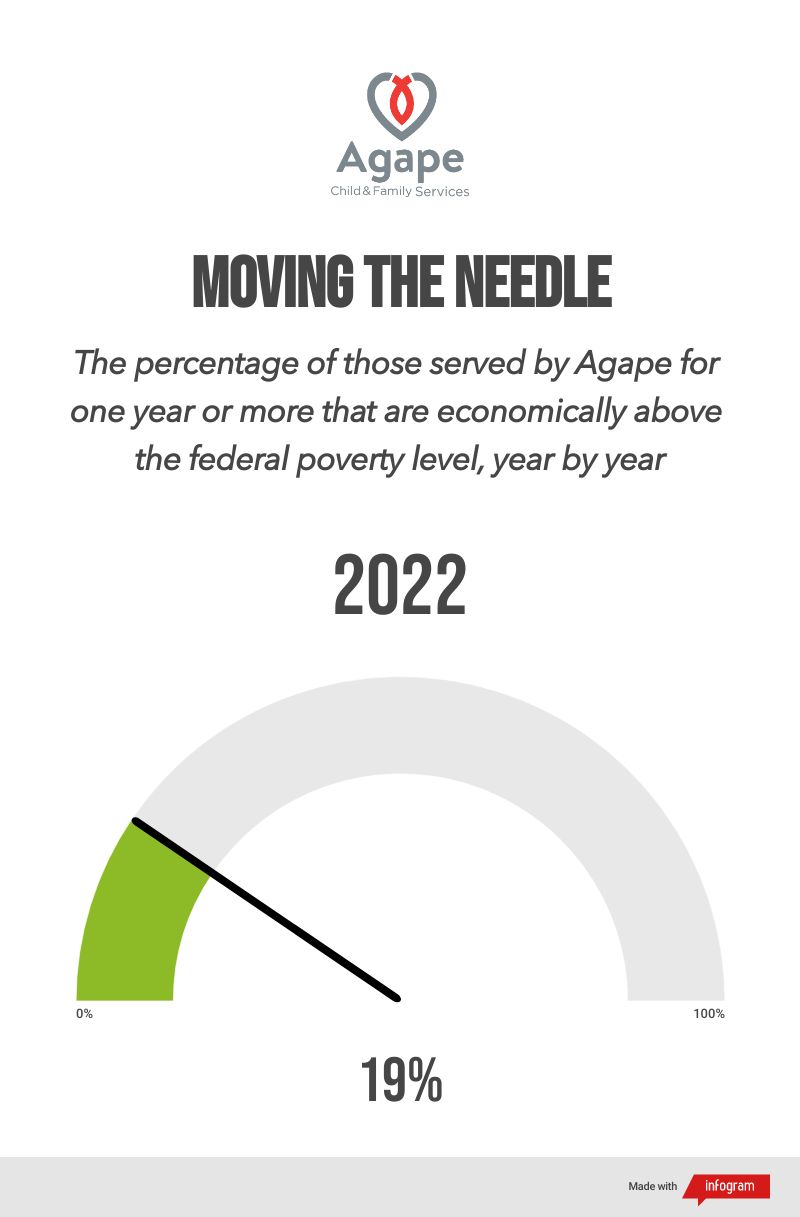
Key Performance Indicators for Multigenerational Poverty Reduction
Agape Child & Family Services | Program
Audience: Community-based organizations that use a whole-family approach to providing direct services aimed at ensuring economic mobility for families
In 2017 Agape Child & Family Services (Agape) set an ambitious goal to reduce the rates of poverty for the families it serves with whole family programming and services by 1 percent per year for 10 years. In the first quarter of 2023, the seventh year of this strategy, 25 percent of families served by Agape for one year or more were above the federal poverty level. Agape has achieved this by implementing and setting key performance indicators for programming that center on housing and basic needs, early language development and K-12 student engagement, employment and workforce development, and faith and hope.
Community-based service providers are often pillars of family support and key partners for state-level administrators. Key performance indicators, such as those used by Agape, allow these organizations to demonstrate the full breadth and depth of their impact to state and community leaders and funders.
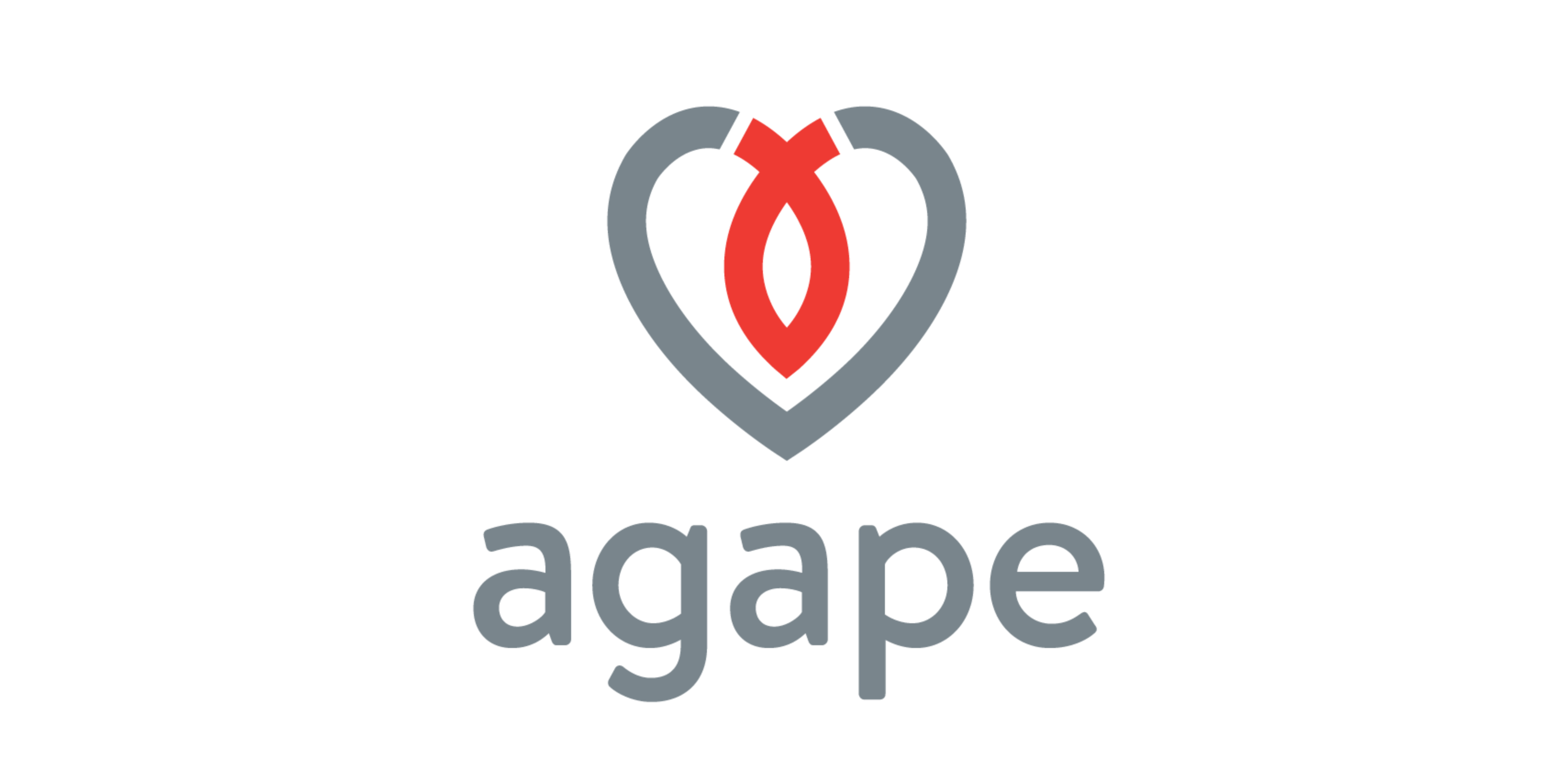
Competitive Edge: Evidence-Based Career Pathways
Agape Child & Family Services | Program
Audience: Community-based organizations that provide workforce development services
Informed by over 175 contributors, including families, neighborhood stakeholders, community leaders, and anchor employers, Agape launched Competitive Edge in March 2022. This initiative generates economic opportunity for families by training and connecting workers to high-demand, high-wage employment opportunities with increased growth potential. Simultaneously, Competitive Edge works to match job seekers with regional employers committed to providing accessible and compatible workplace benefits.
Organizations seeking to strengthen or pilot partnerships with workforce partners, including workforce boards and employers, can use this report as a roadmap and communications tool as they demonstrate the importance of supporting parents’ economic stability while ensuring their children are in high-quality early childhood settings.
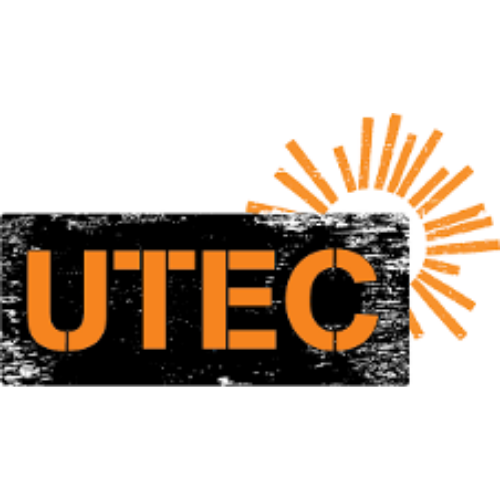
Bureau Rehabilitation and Values Enhancement (BRAVE) Program
UTEC | Program
Audience: Community-based organizations working to influence state policy; governor’s teams seeking to transform justice systems; philanthropic organizations seeking to strengthen public-private partnerships for justice-involved families
The Bureau Rehabilitation and Values Enhancement (BRAVE) Program is the nation’s first specialized unit in a state prison dedicated to young adult fathers. Facilitated by the Massachusetts Department of Corrections, the BRAVE Program provides young fathers with programming centering fatherhood, including a Nurturing Fathers curriculum, and allows for visitation with children in a family-friendly space. Young fathers are also partnered with mentors. UTEC has developed and led training for correctional staff and mentors to guide restorative justice/peace circles in the BRAVE Program.
UTEC is expanding this model by bringing the Nurturing Fathers curriculum to county-run juvenile detention centers in Massachusetts. The first of its kind, the BRAVE Program is a groundbreaking opportunity to develop an evidence-based approach to empowering young fathers as they prepare to return to their families and become leaders in policy change efforts.
Health and Mental Health
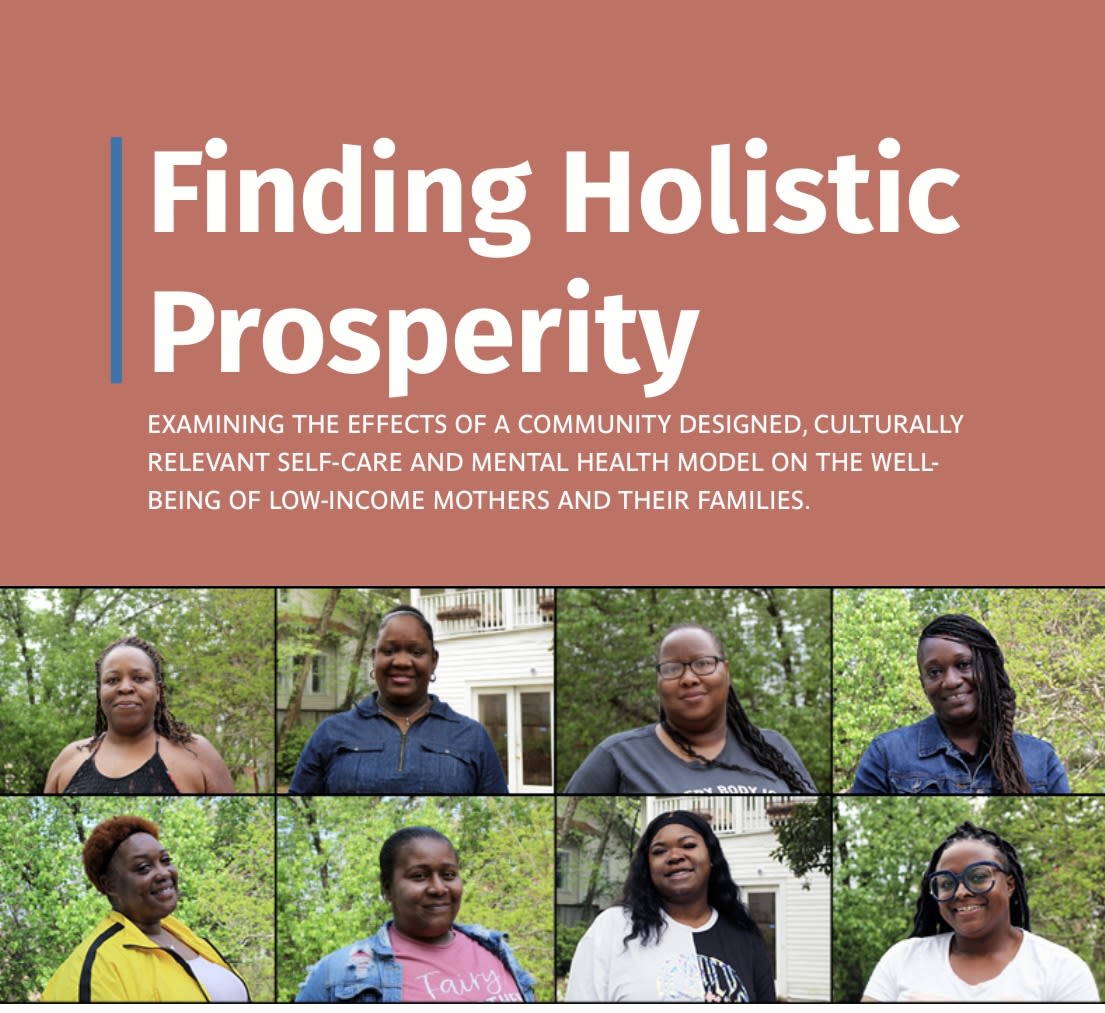
Finding Holistic Prosperity
Springboard To Opportunities | Report
Audience: Community-based organizations combining economic and mental health supports and services
This report details the process and implementation of Springboard To Opportunities’ MISS Model, a community-created toolkit and program to support growth, healing, and leadership among participants in the Magnolia’s Mother’s Trust.
In 2018, Springboard launched its guaranteed income program, the Magnolia Mother’s Trust, for the first cohort of Black mothers. The second cohort launched at the onset of the pandemic. Families who participated in the guaranteed income program experienced greater stability, an enhanced sense of self-efficacy and agency, and the ability to meet their family’s material needs. However, the pandemic brought additional financial challenges and trauma to communities already experiencing poverty and systemic racism in the United States. The MISS Model addresses key questions, including: Is a mental health intervention just as important and necessary as the cash infusions in helping families cope and move toward prosperity, especially in times of ongoing crisis?
The MISS Model was created and developed in partnership with parents, exemplifying effective and equitable codesign of policies and programs within a community-rooted organization. Informed by the needs and experiences of Black mothers, the model centers both a racial and gender equity lens that is responsive to their lives.
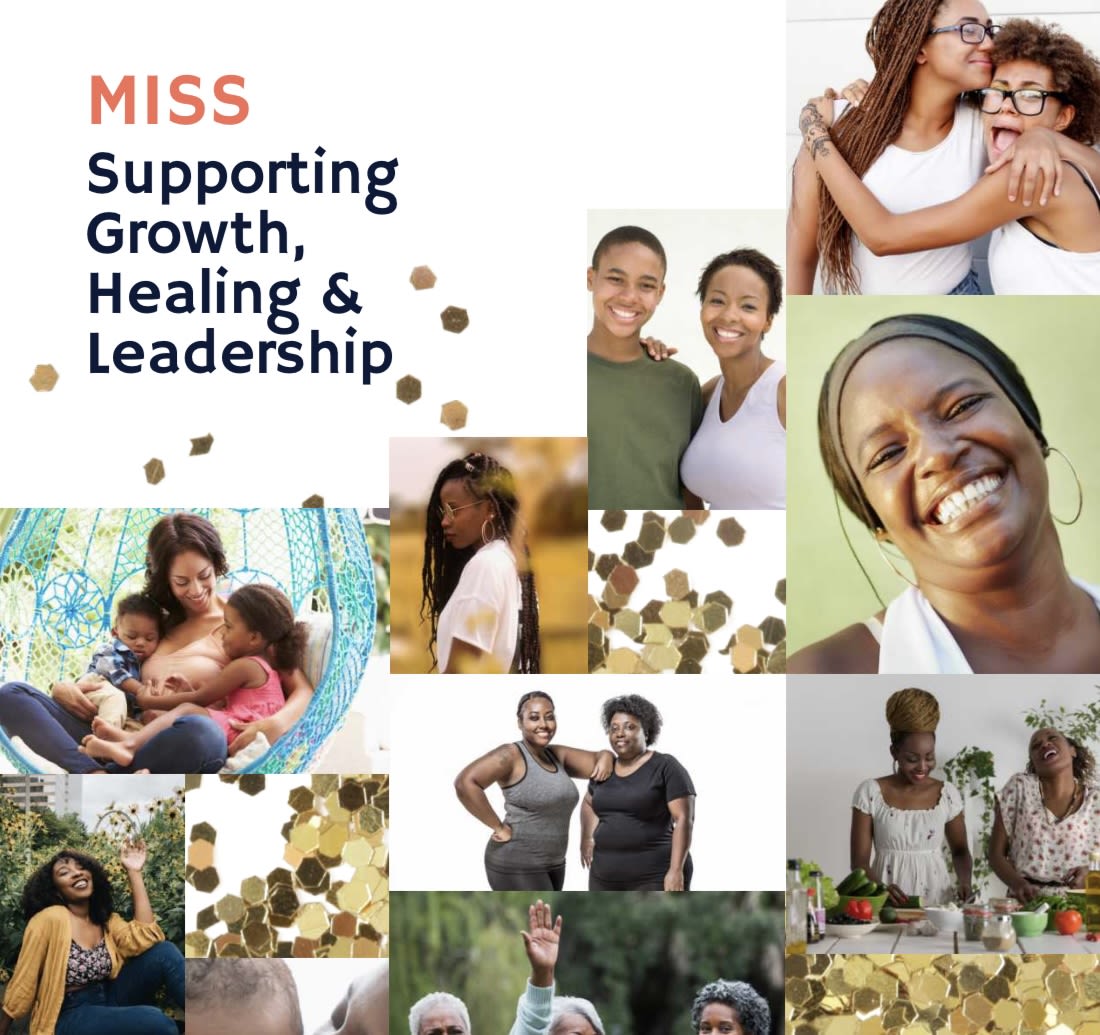
MISS: Supporting Growth, Healing, & Leadership
Springboard To Opportunities | Toolkit
Audience: Community-based organizations developing mental health programs and supports for mothers
This toolkit provides community-based organizations with a roadmap for implementing the MISS Model. MISS was designed by participants of the Magnolia Mother's Trust to help women grow and heal as they become community leaders. This unique program provides an opportunity for participants to focus on multiple aspects of their lives as part of a powerful learning community that centers wellness and leadership.
Tailored to the lived experiences of Black mothers, this toolkit invites participants in the MISS program to slow down, assess and focus on what’s important, acknowledge the need for healing, and step into action by emphasizing the critical balance of “doing” and “being.”
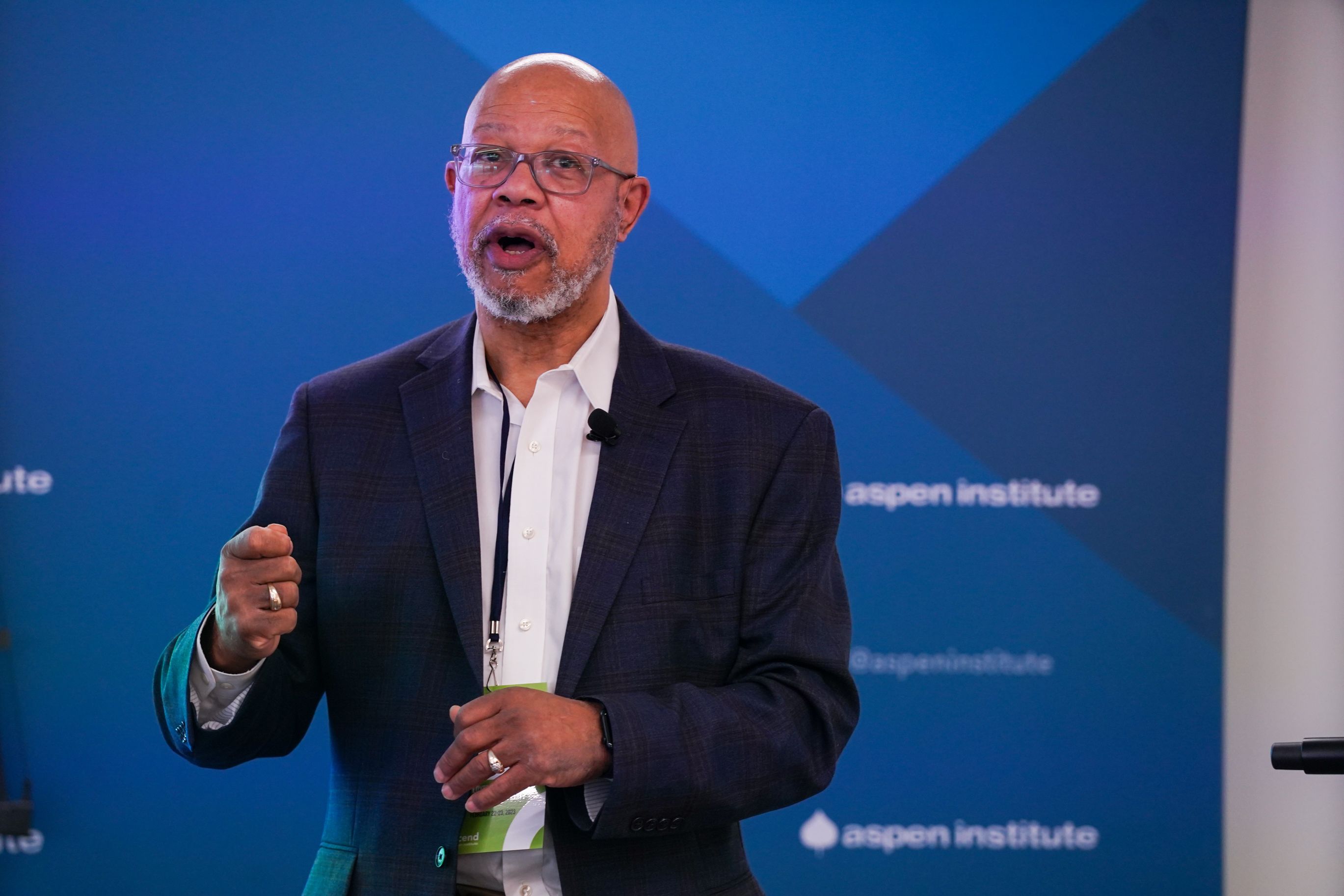
Frank Robinson, Phd, Vice President, Public Health, Baystate Health | Photo by Ralph Alswag
Frank Robinson, Phd, Vice President, Public Health, Baystate Health | Photo by Ralph Alswag
Making Caregiving and Breadwinning Compatible at Baystate Health
Baystate Health | Featured Innovation
As a leading employer in Springfield, Massachusetts, Baystate Health leverages its economic output through three pillars: local hiring, local sourcing, and place-based investing. As an employer of hundreds of frontline health care professionals, Baystate conducted an internal assessment of employee compensation, benefits uptake, access to professional development, and barriers in policy that impact the well-being of their working families. This undertaking led it to partner with community-based and workforce development organizations, Parent Villages and Springfield WORKS, to develop a suite of resources for the current and developing pipeline of employees.

Lucy Marcil, MD, Pediatrician & Executive Director, StreetCred at Boston Medical Center, Aspen Ascend Fellow 2022
Lucy Marcil, MD, Pediatrician & Executive Director, StreetCred at Boston Medical Center, Aspen Ascend Fellow 2022
Medical Financial Partnerships with StreetCred at Boston Medical Center
StreetCred at Boston Medical Center | Featured Innovation
The financial coaching program at StreetCred at Boston Medical Center is one of only two programs in the country that combines financial coaching with a pediatric clinic. StreetCred emphasizes the innovative role medical financial partnerships (MFPs) can play in the economic mobility and health of families. StreetCred has developed an Economic Bundle for patients that includes tax preparation, enrollment in college savings accounts, and employment opportunity services.

Nick Jones, Vice President, Community Wellness, Nationwide Children's Hospital
Nick Jones, Vice President, Community Wellness, Nationwide Children's Hospital
Resident-Driven Community Investments at Nationwide Children’s Hospital
Nationwide Children's Hospital | Featured Innovation
Nationwide Children’s Hospital’s (NCH) Healthy Neighborhoods Healthy Families (HNHF) strives to expand NCH’s commitment to the health and well-being of all children and families. Working with Cohear, HNHF held discussions with residents in Linden, Ohio, that would inform the hospital's role in promoting community health and affordable housing development. HNHF and Cohear facilitated a series of five discussions with over 40 residents on the topics of health and wellness, youth success, workforce development, and access to housing.
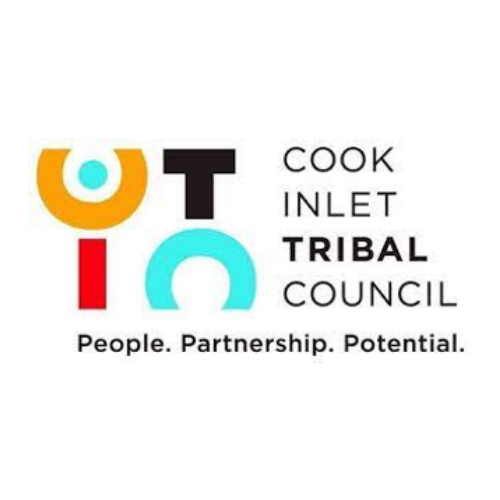
The Five Factors Survey: An innovation in multigenerational, culturally responsive case management
Cook Inlet Tribal Council | Case Study
Audience: Direct service providers seeking to develop a multigenerational, culturally responsive case management system
This case study documents the ideation, development, and implementation of Cook Inlet Tribal Council’s Five Factors Survey. Inspired by the question, “What are the factors that move families forward?” The Five Factors Survey (FFS) is a questionnaire designed to support two key operational functions: elicit participants’ self-defined vision of success and define goals. The aggregated responses provide Cook Inlet Tribal Council (CITC) with information to support budgetary and programmatic planning throughout the organization.
The case study provides an overview of CITC’s multi-year journey in designing and implementing an organization-wide tool for case management, informed by community participants and staff feedback. CITC offers key considerations and recommendations for radically shifting an organization’s ability to support participants in defining, designing, and achieving their unique goals for success.
